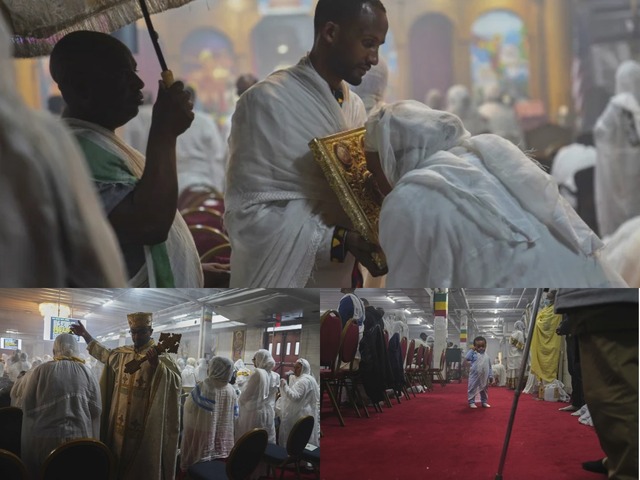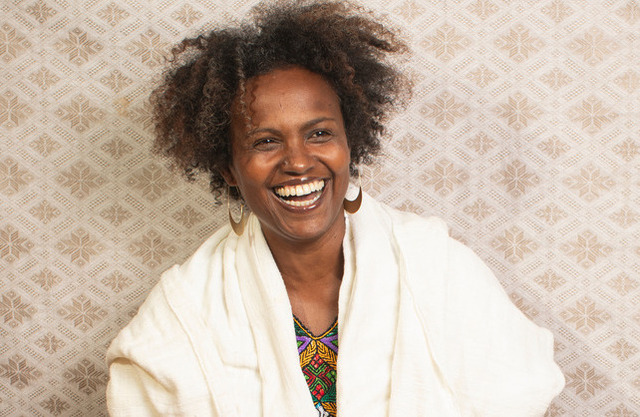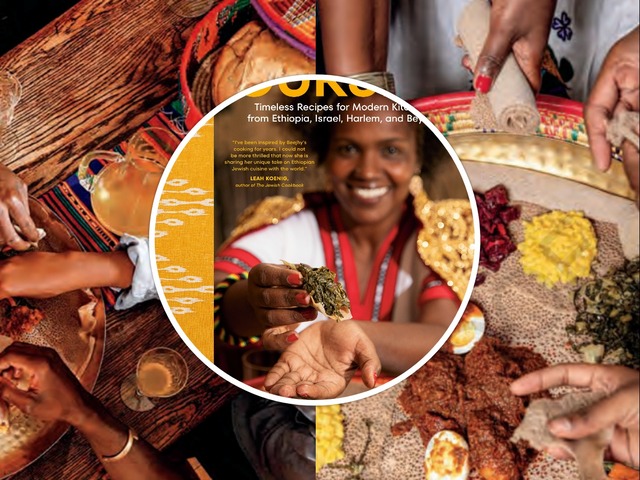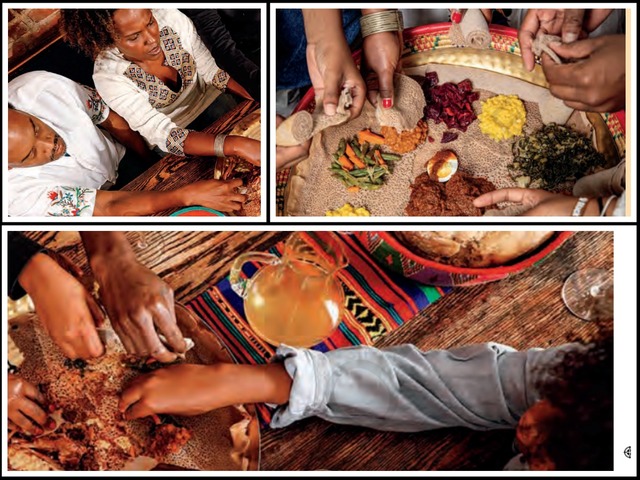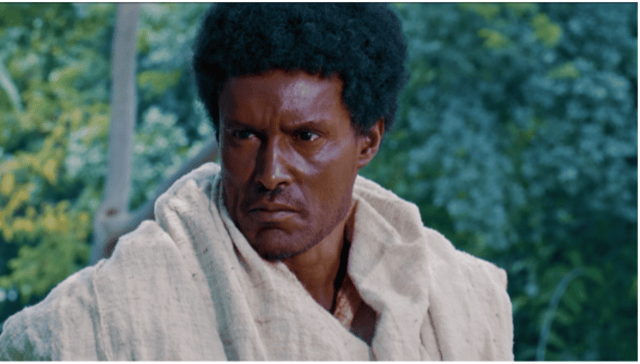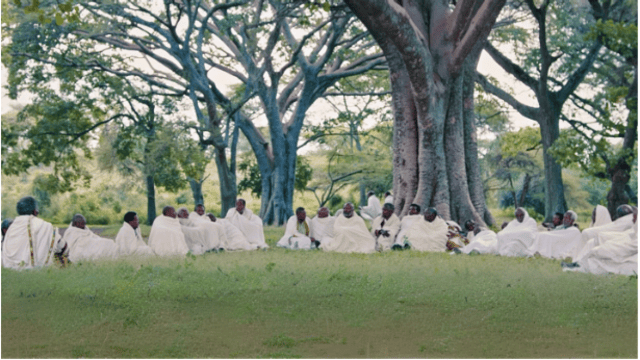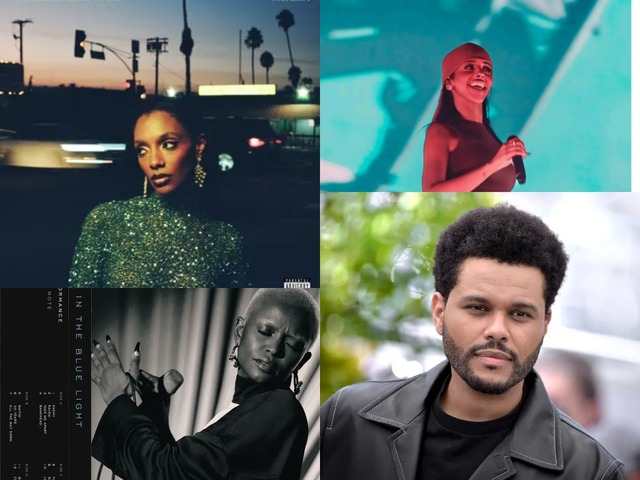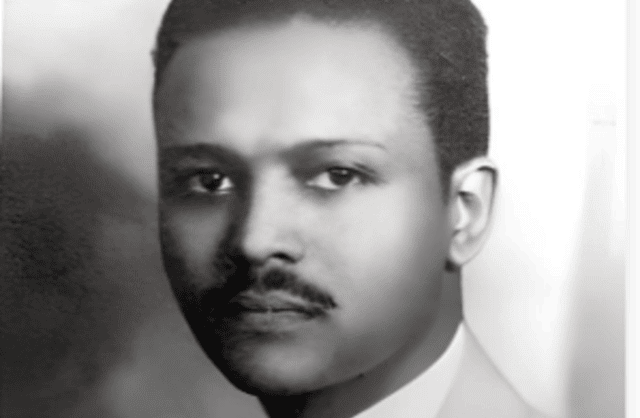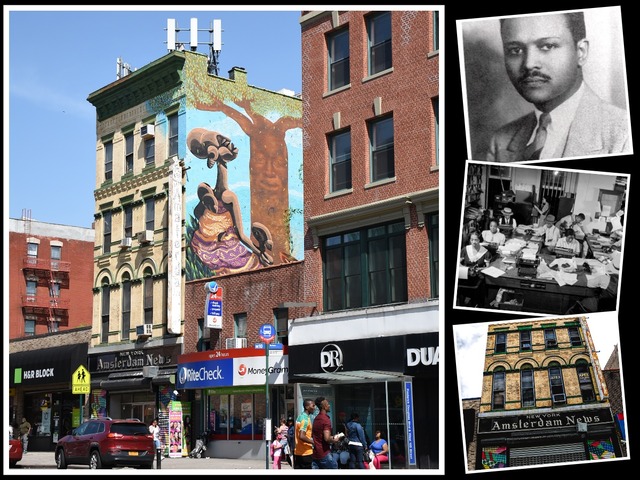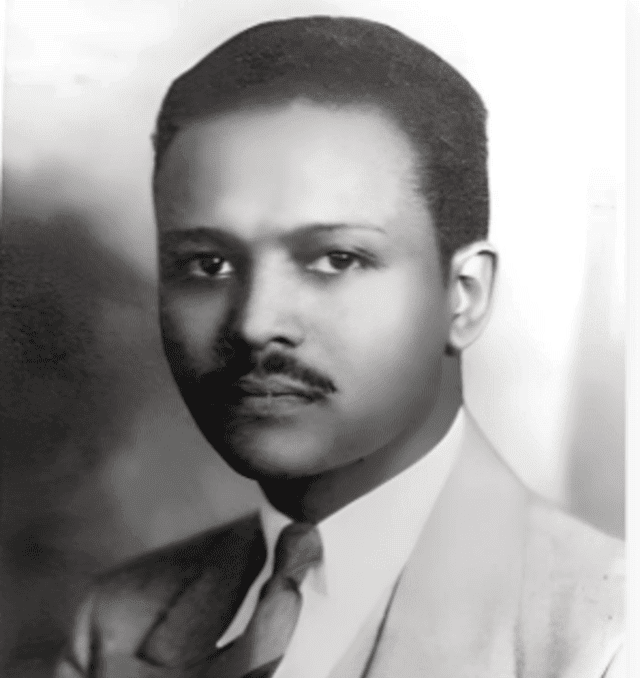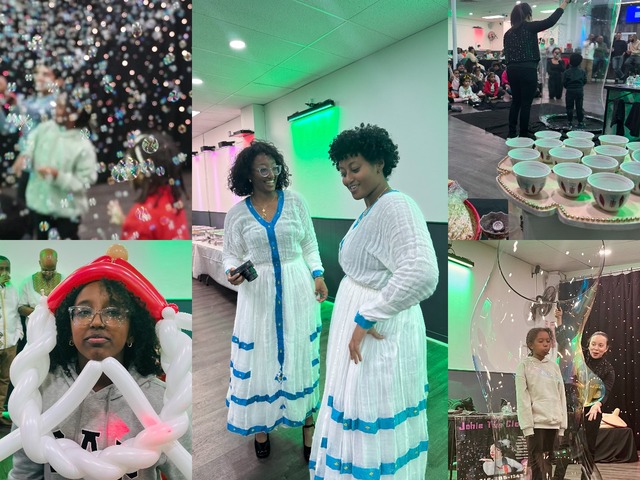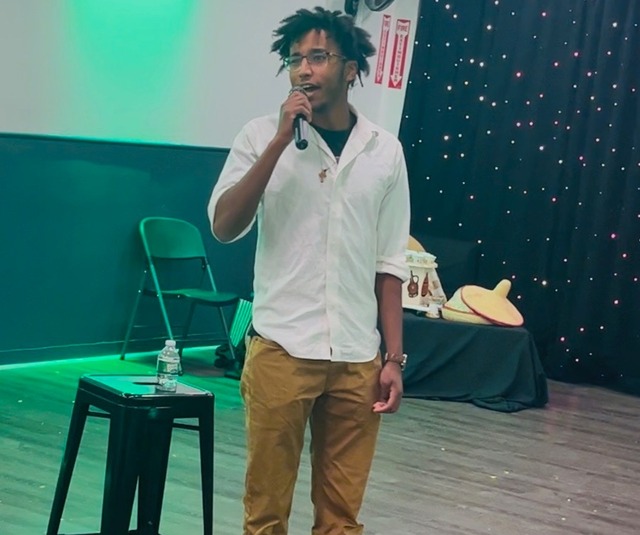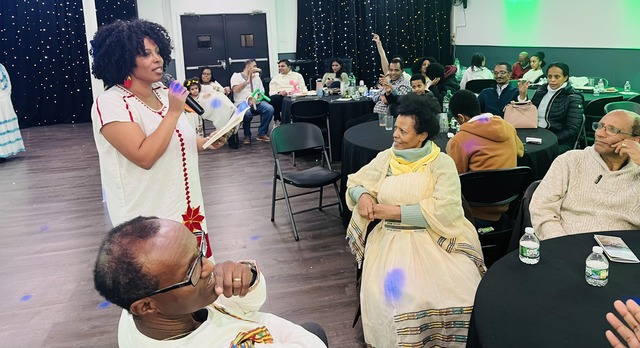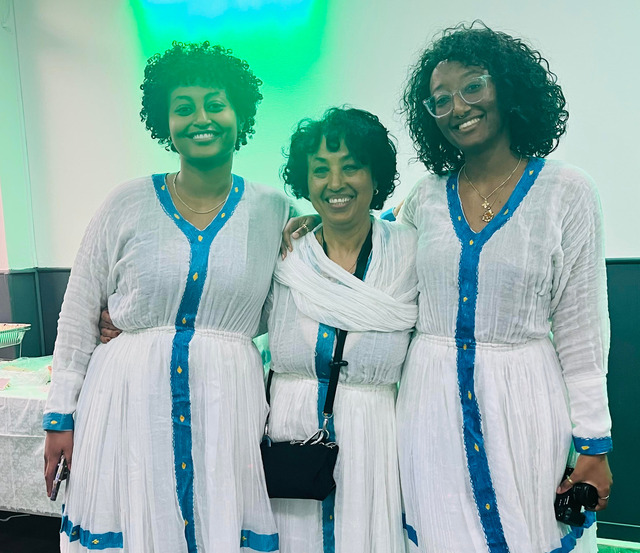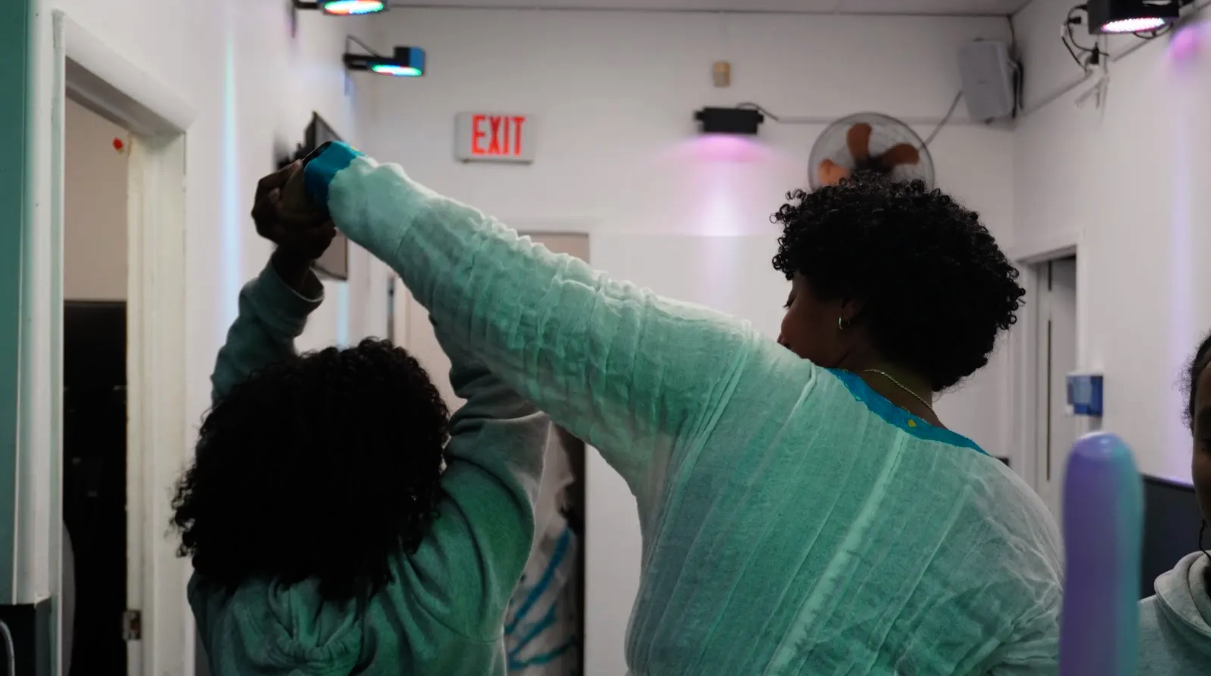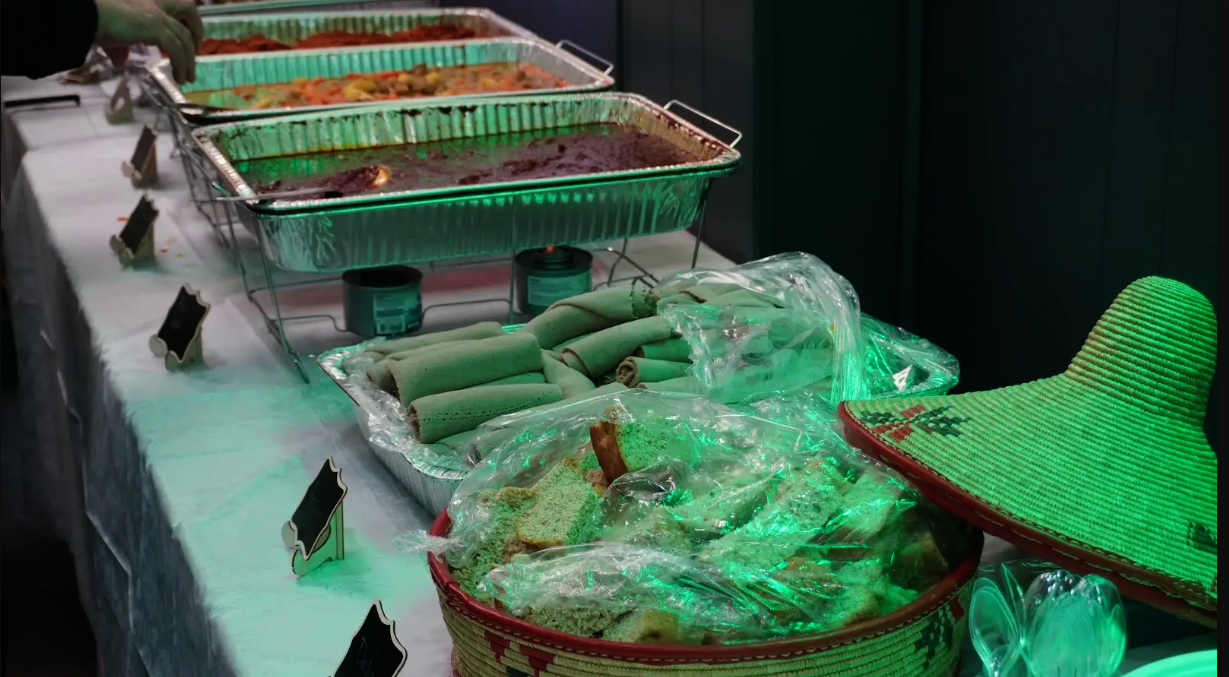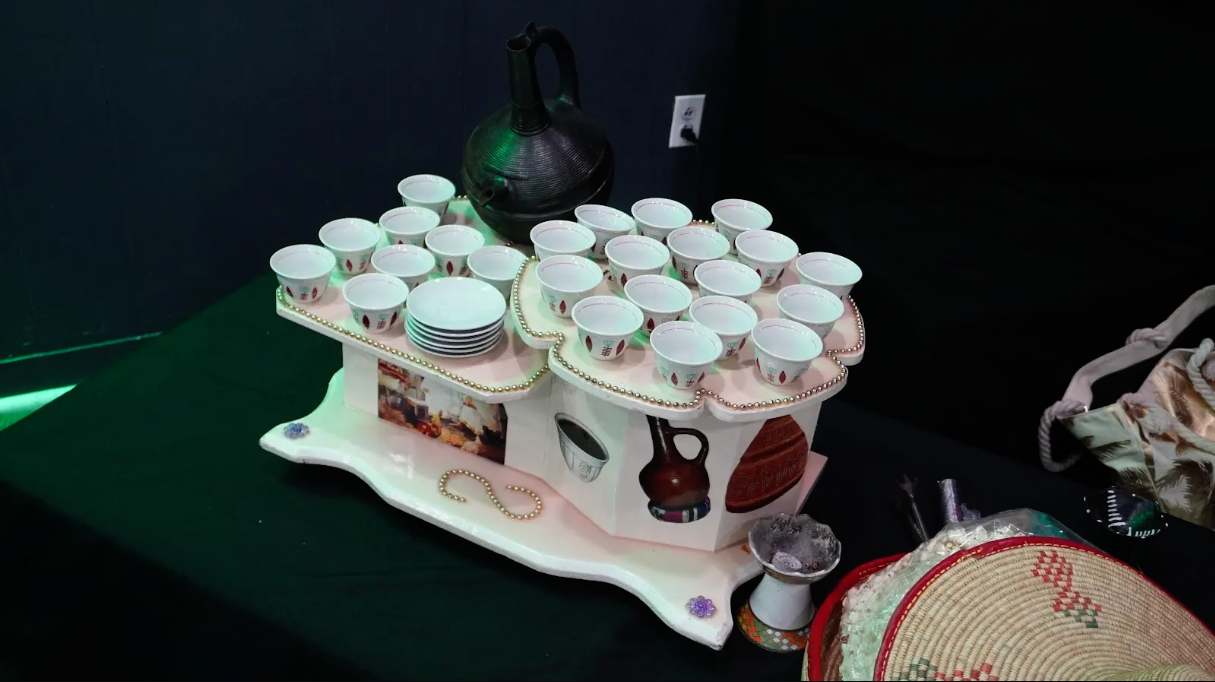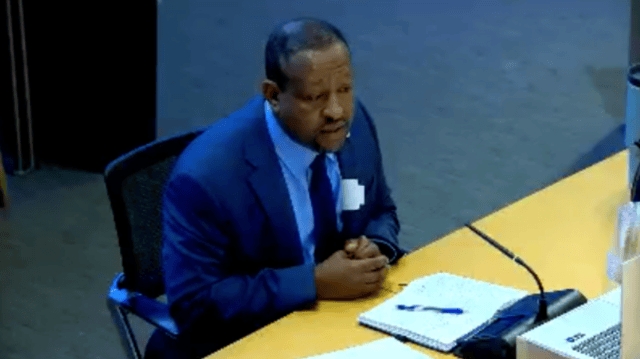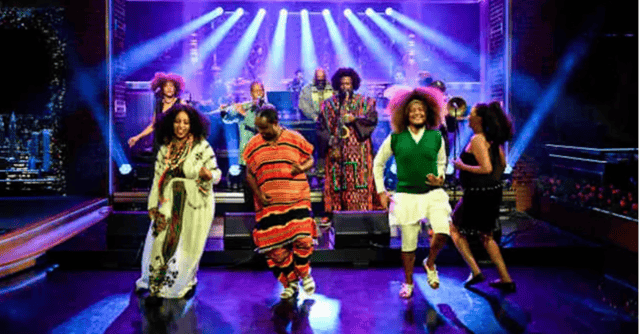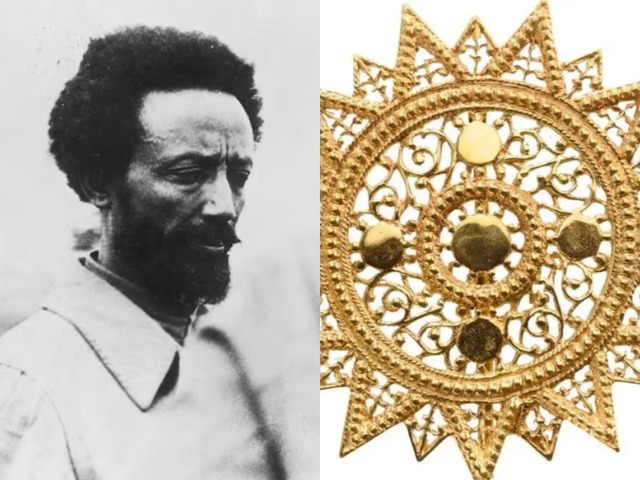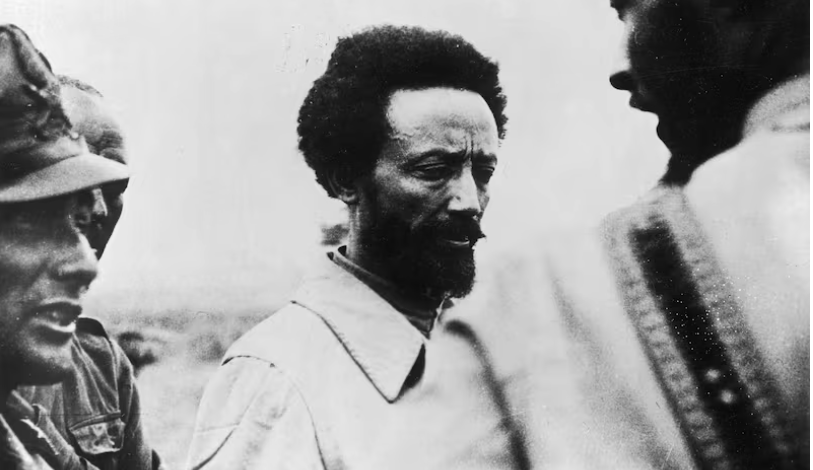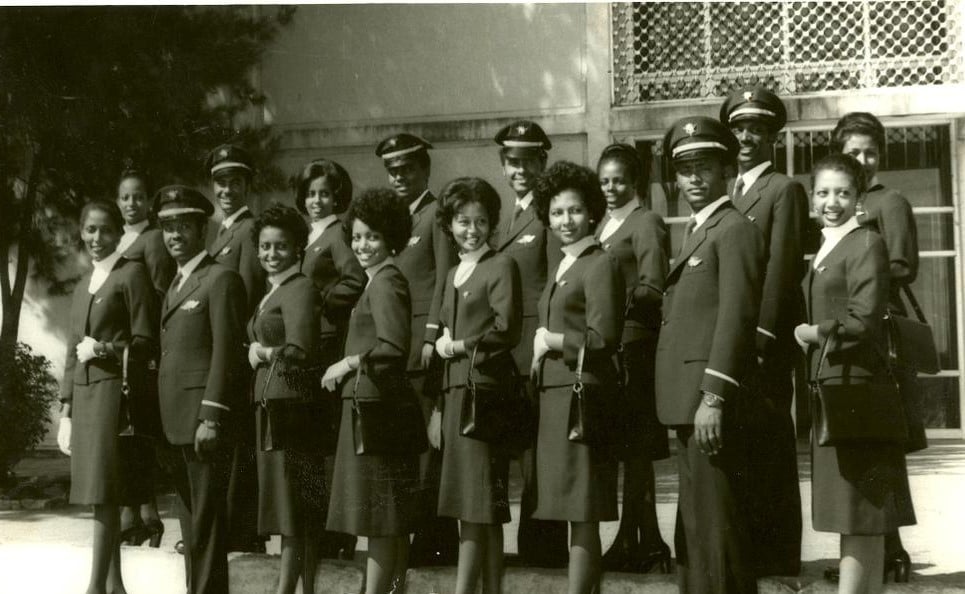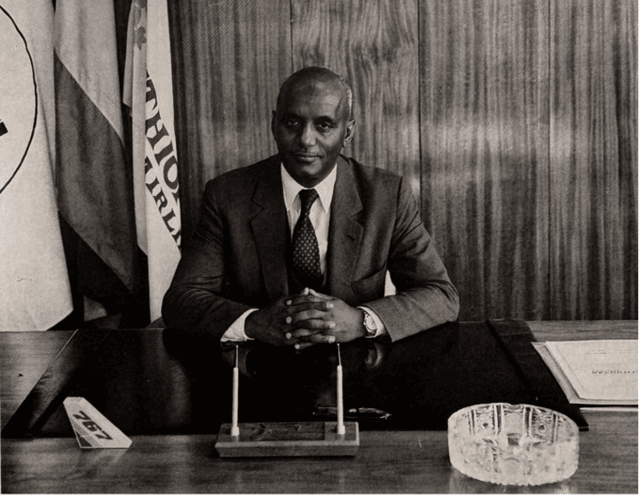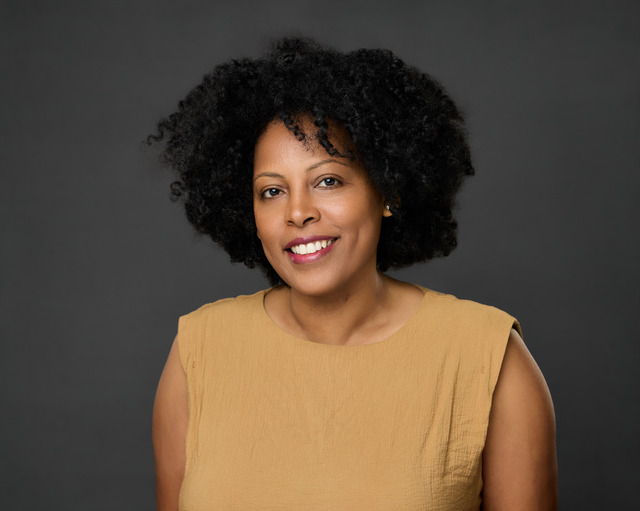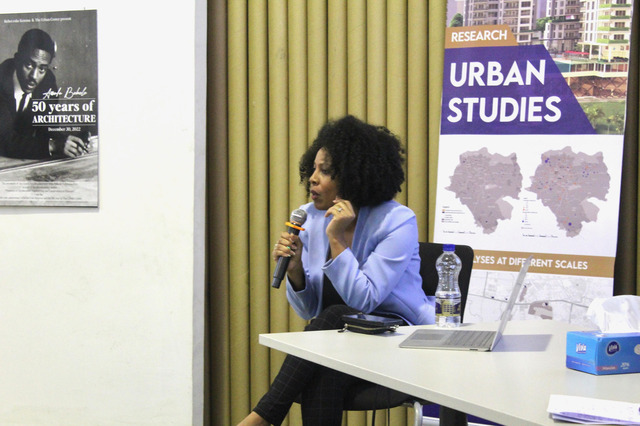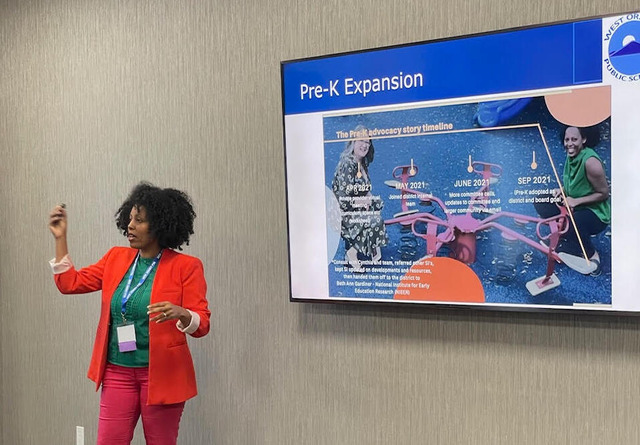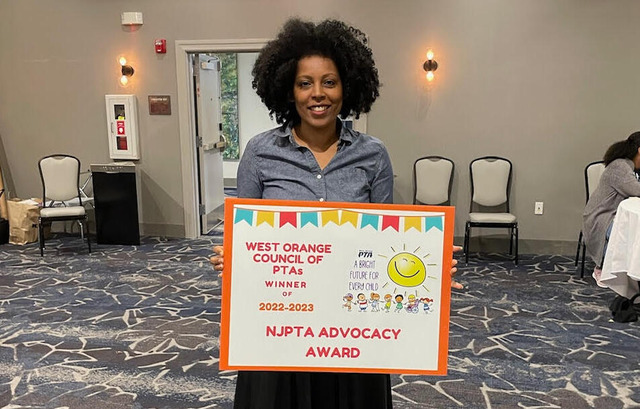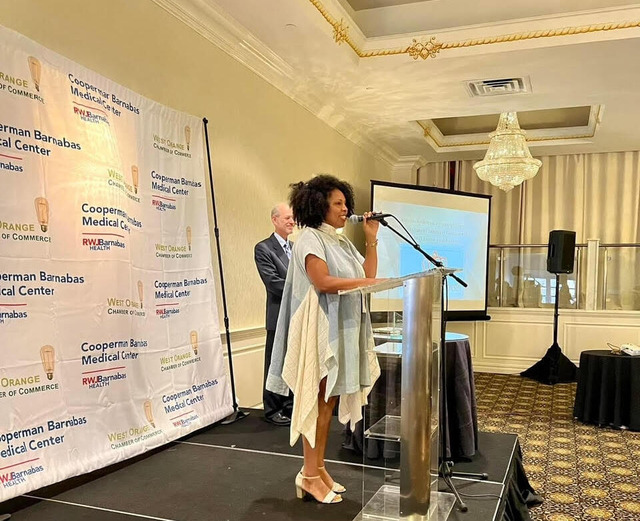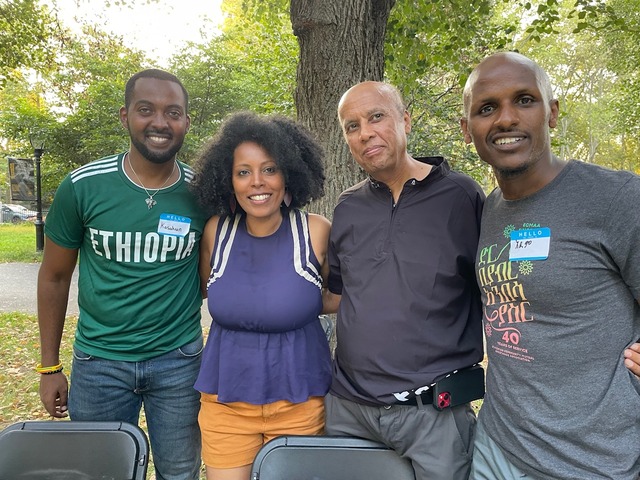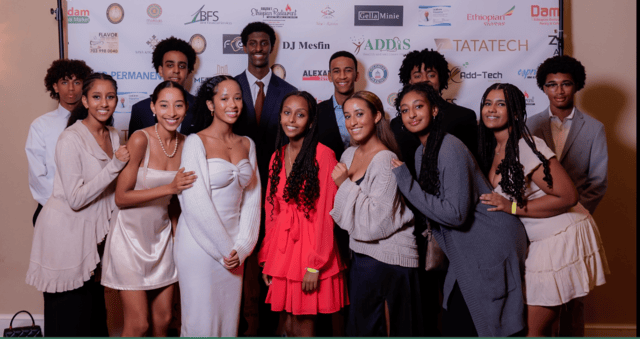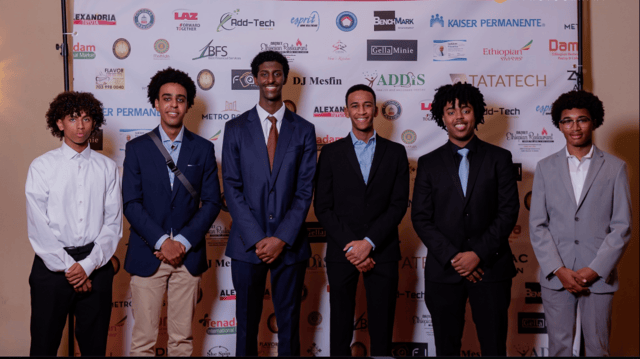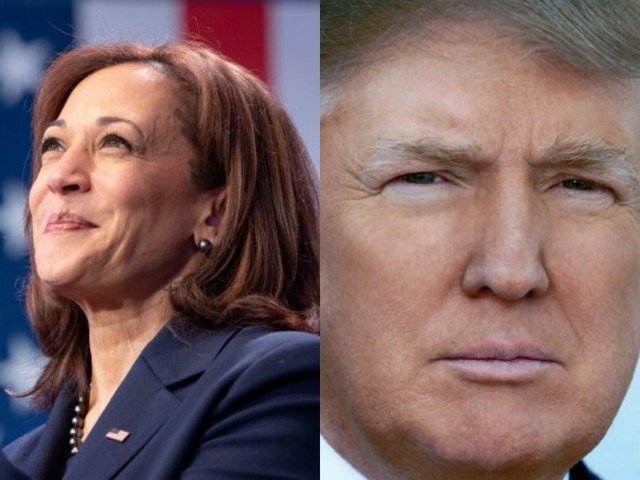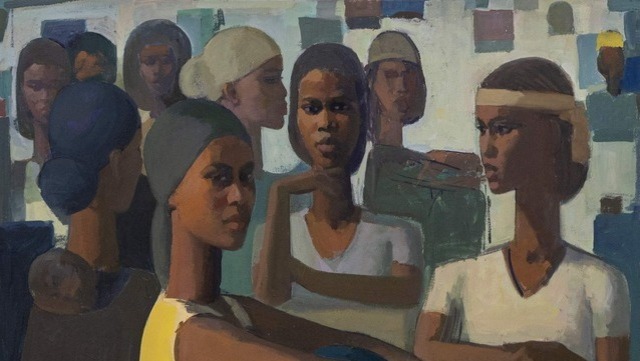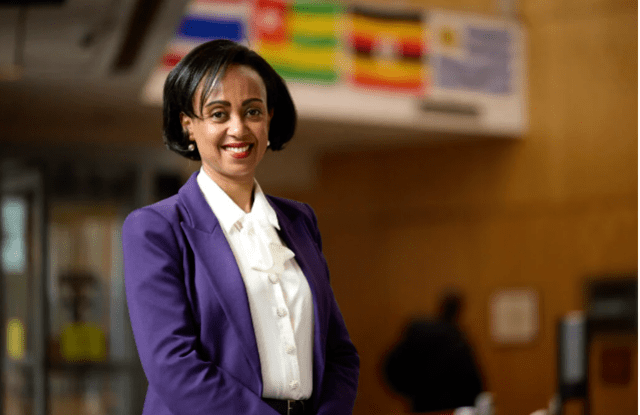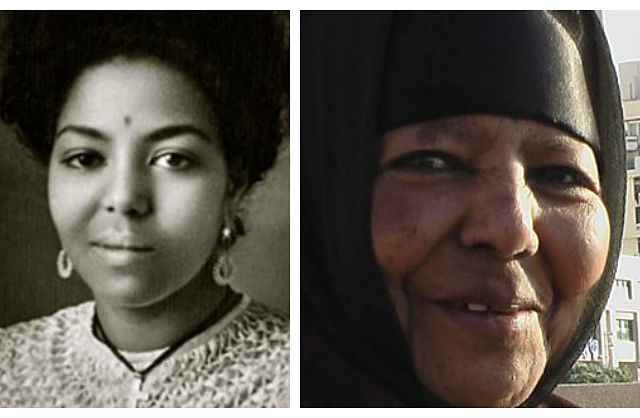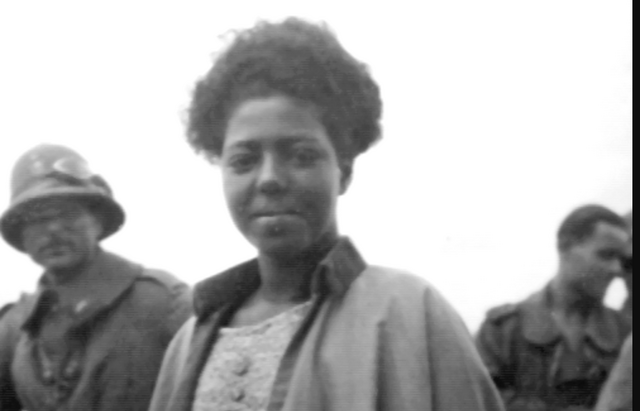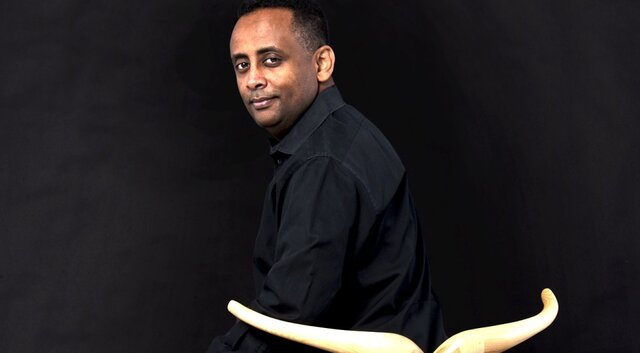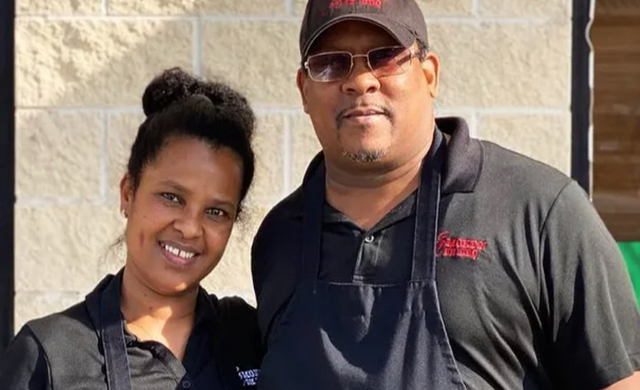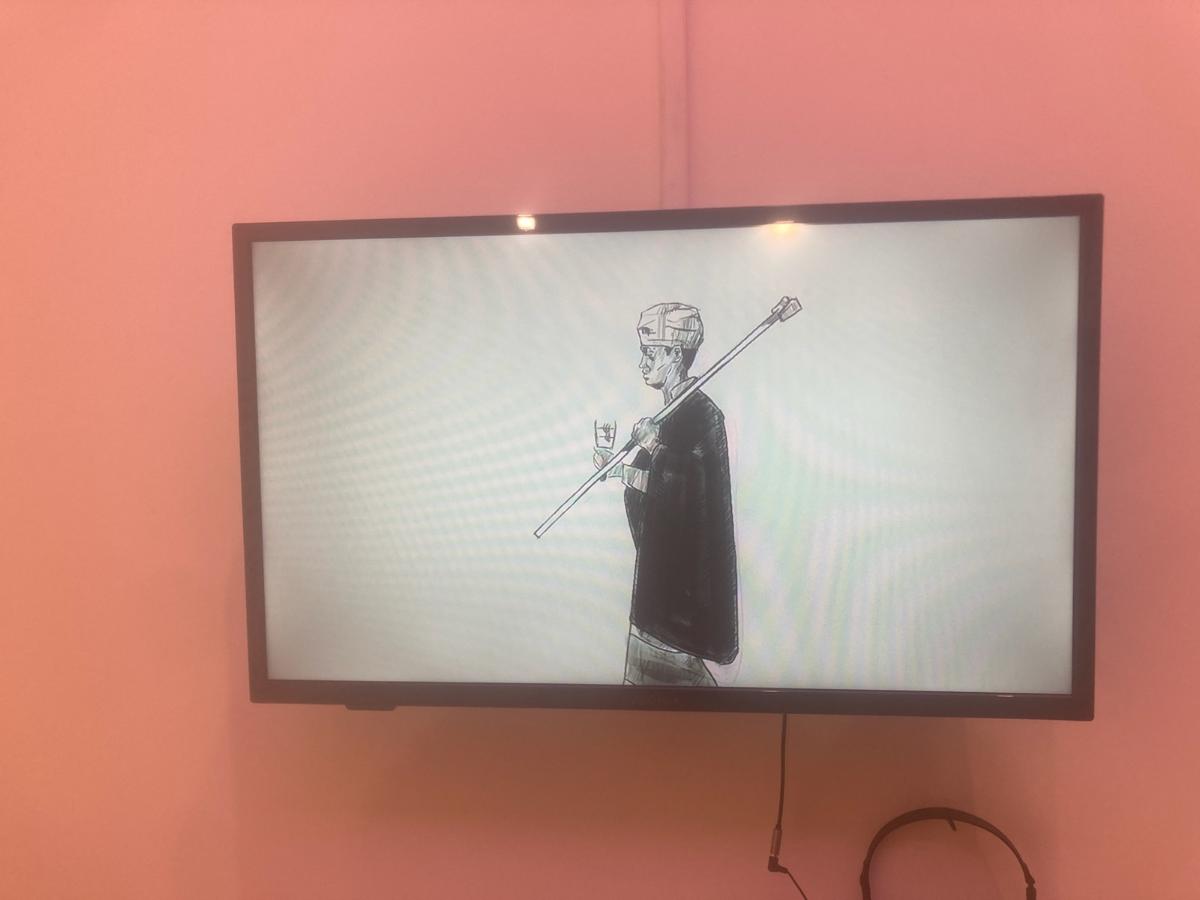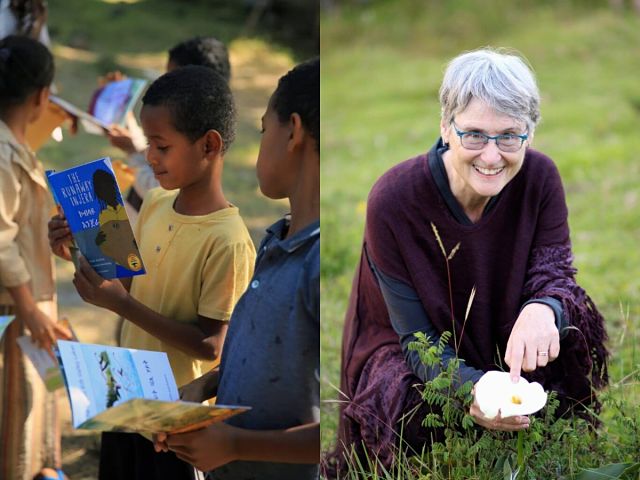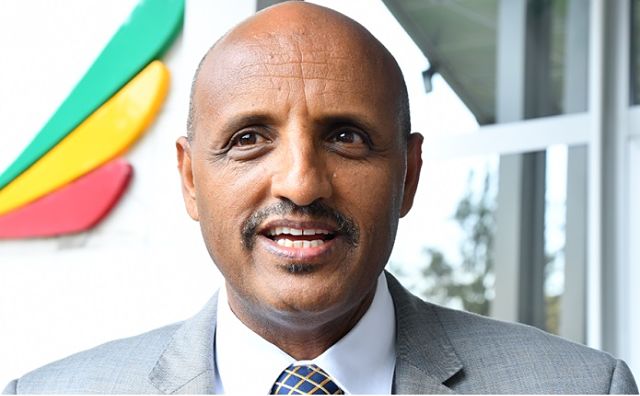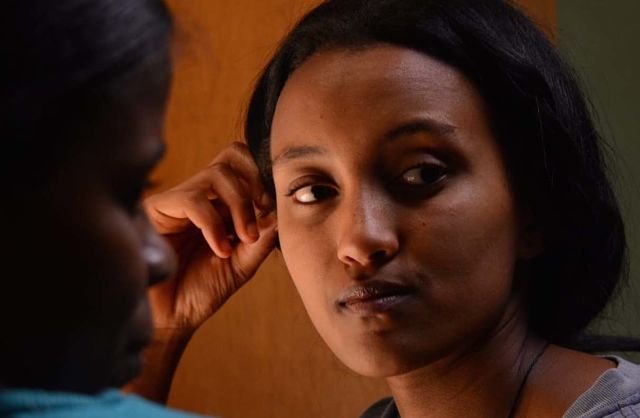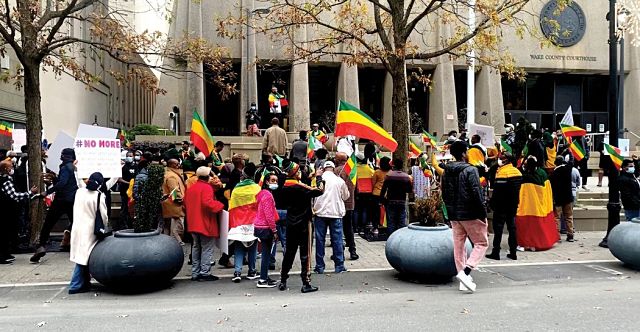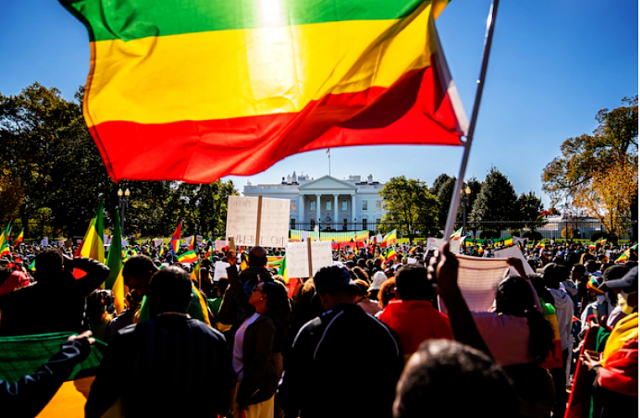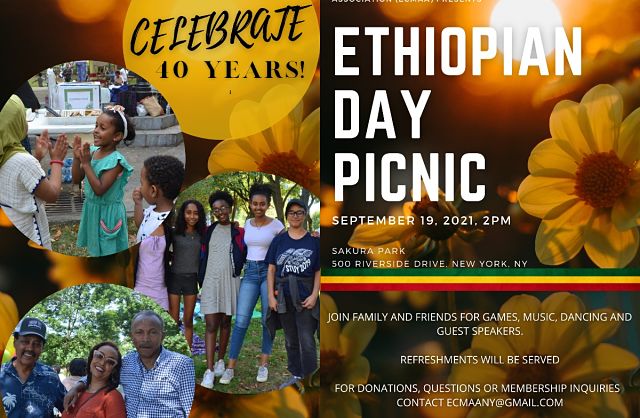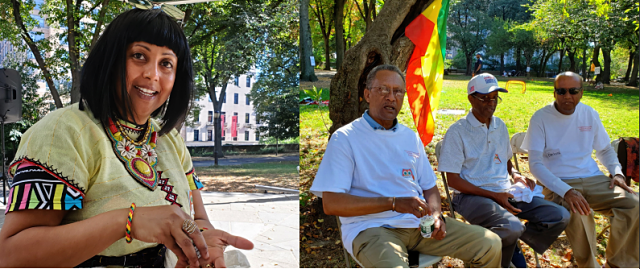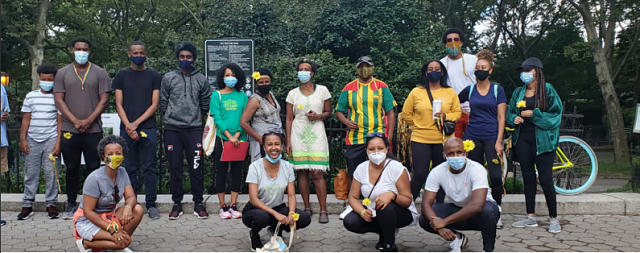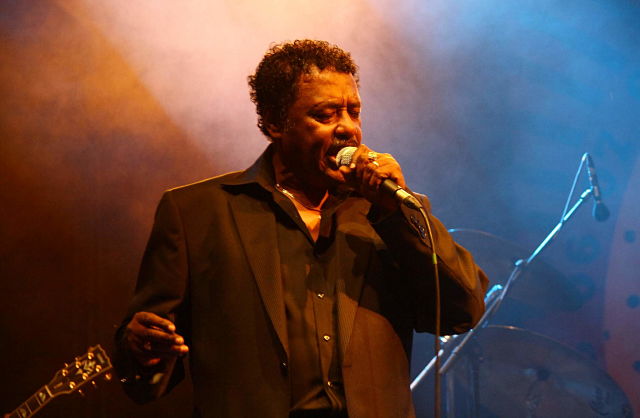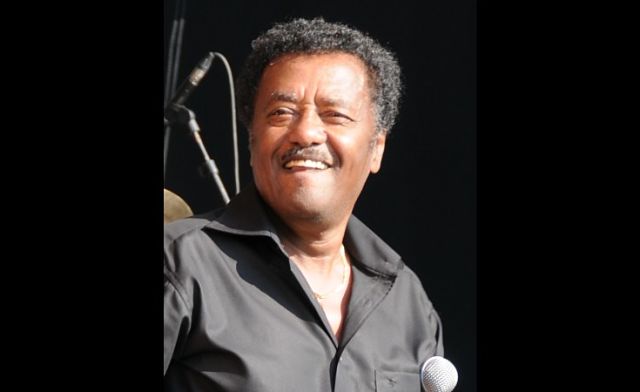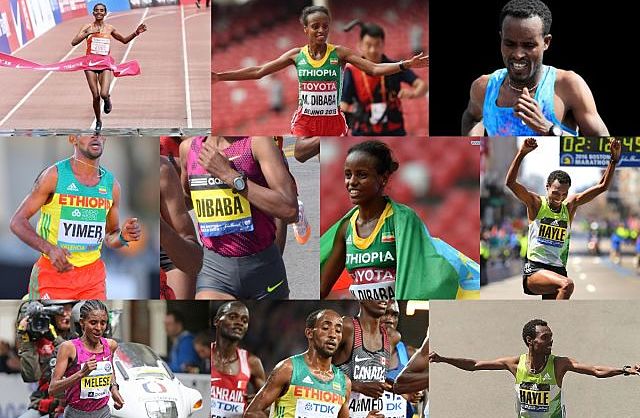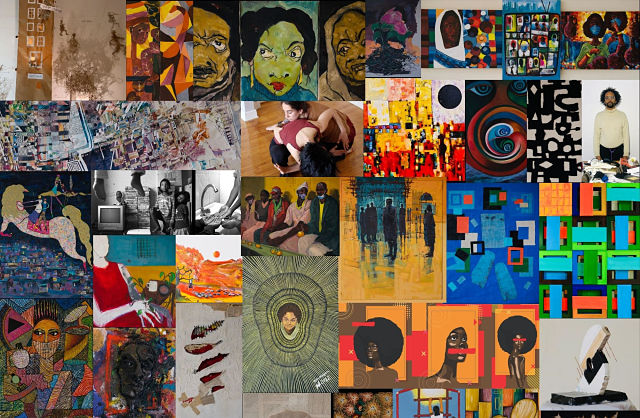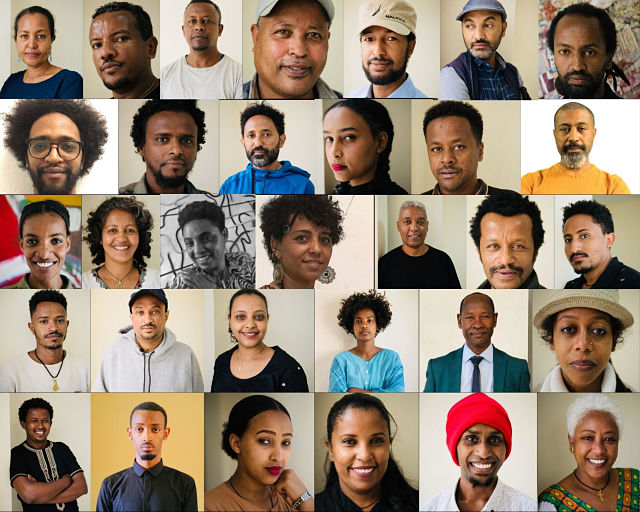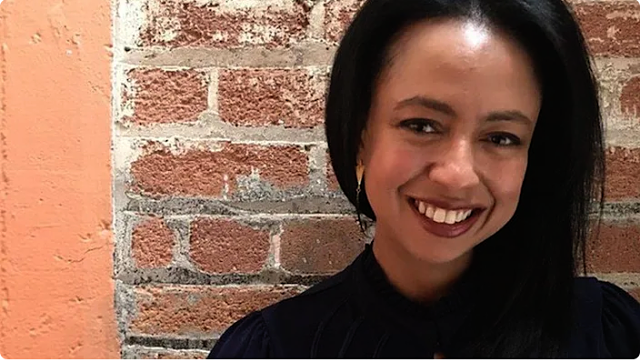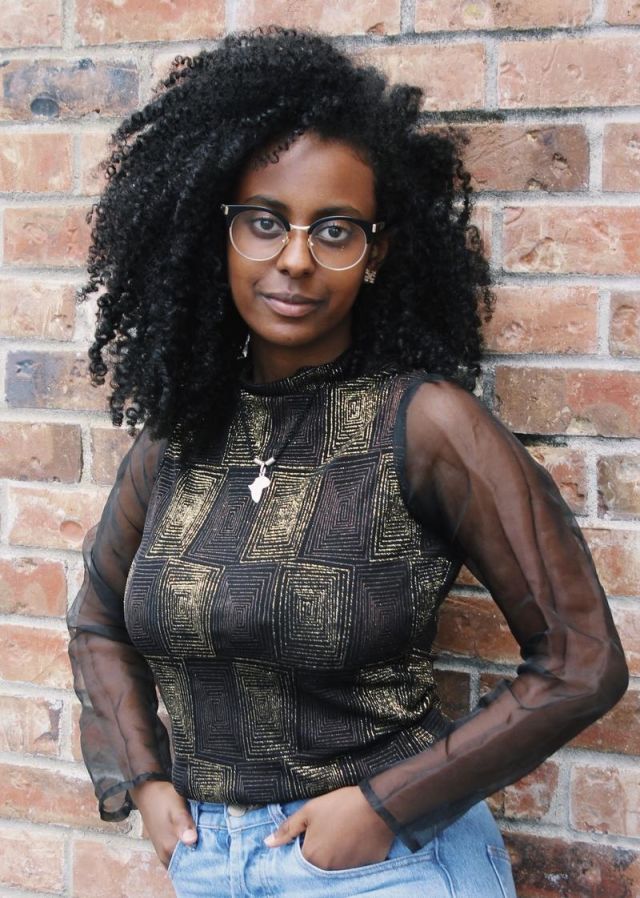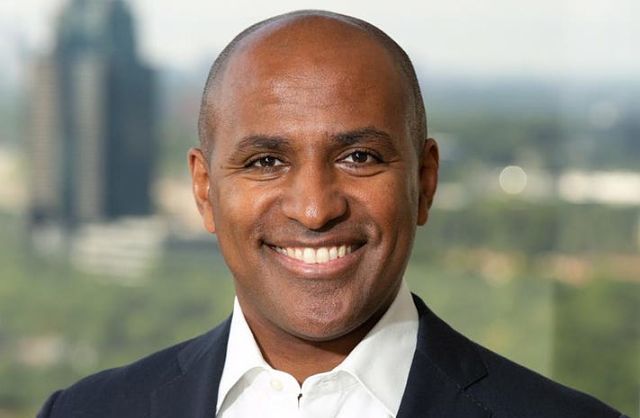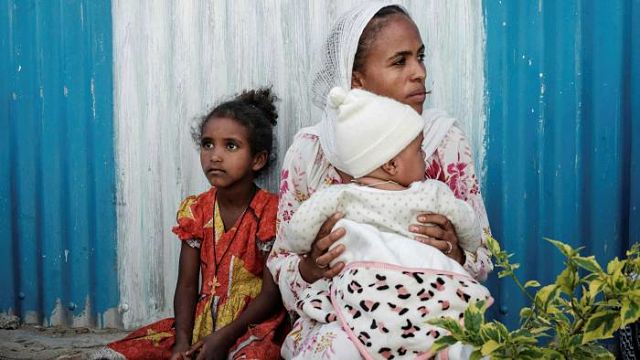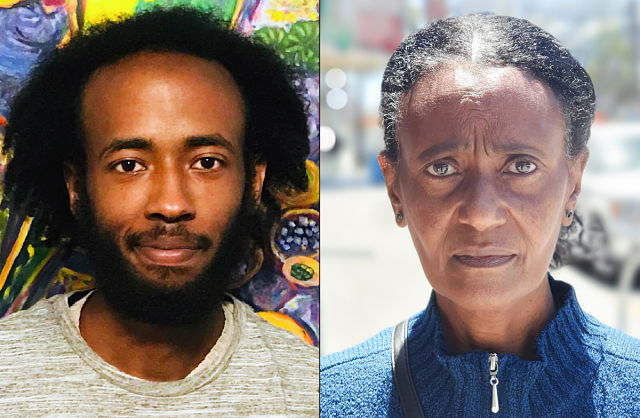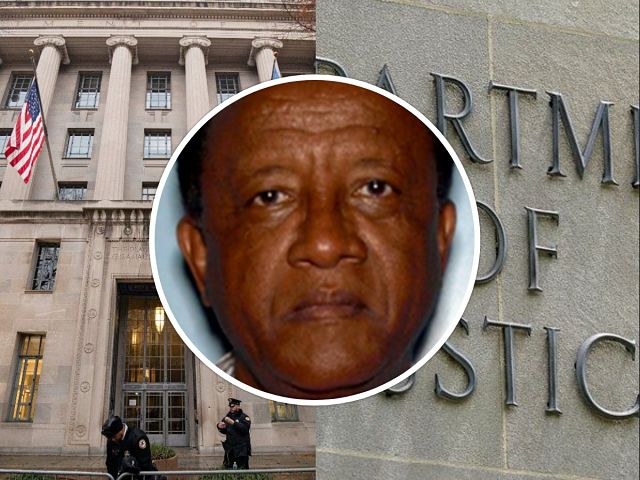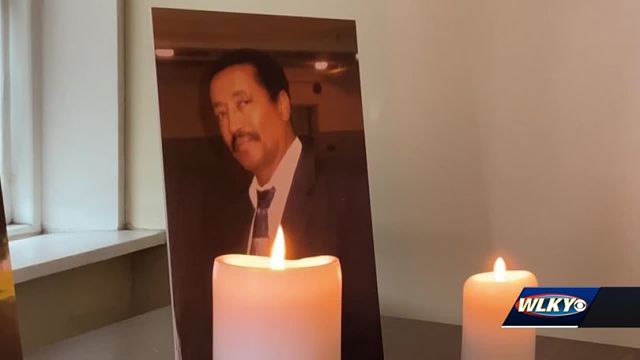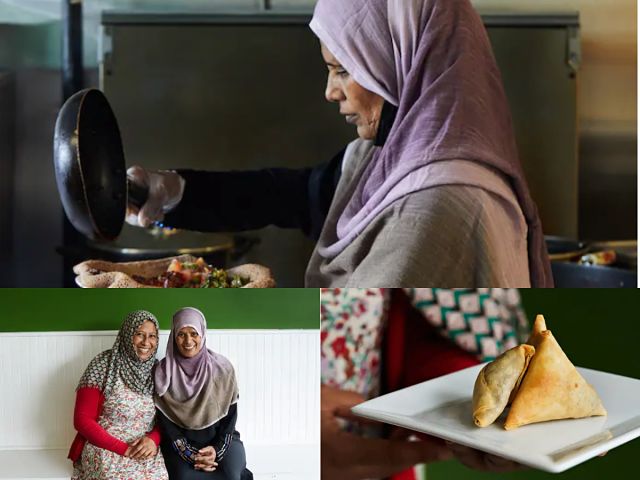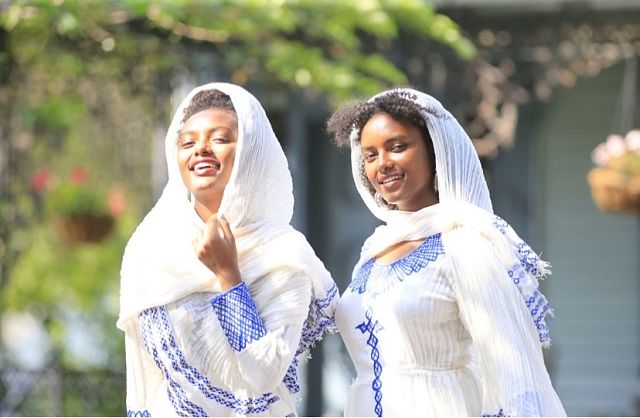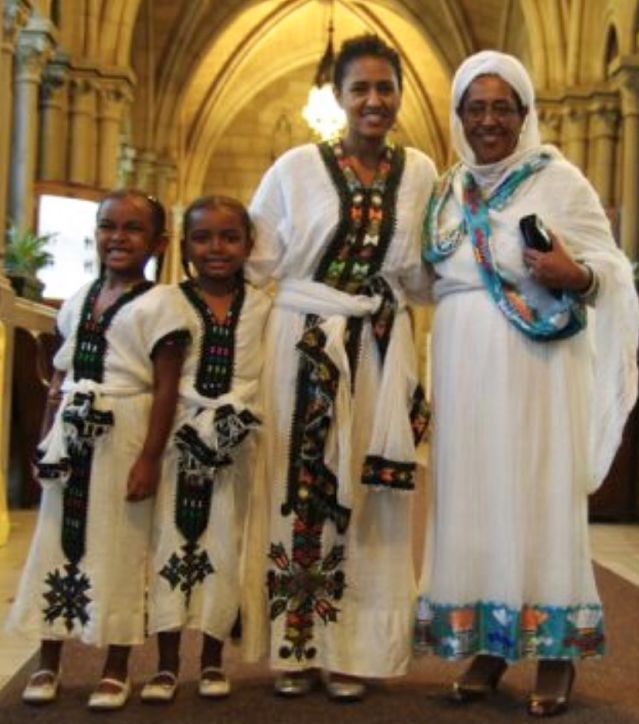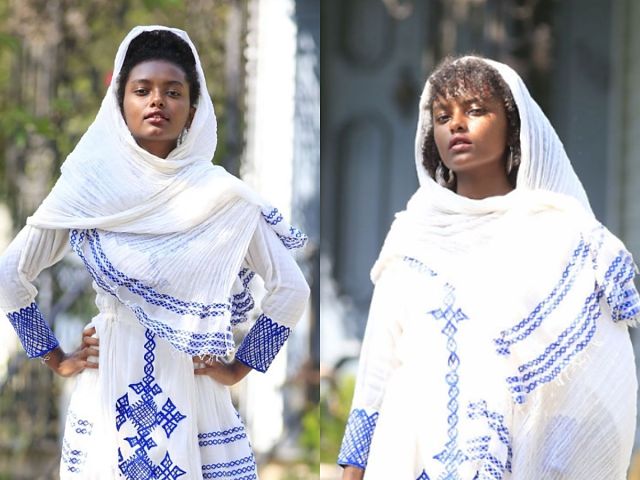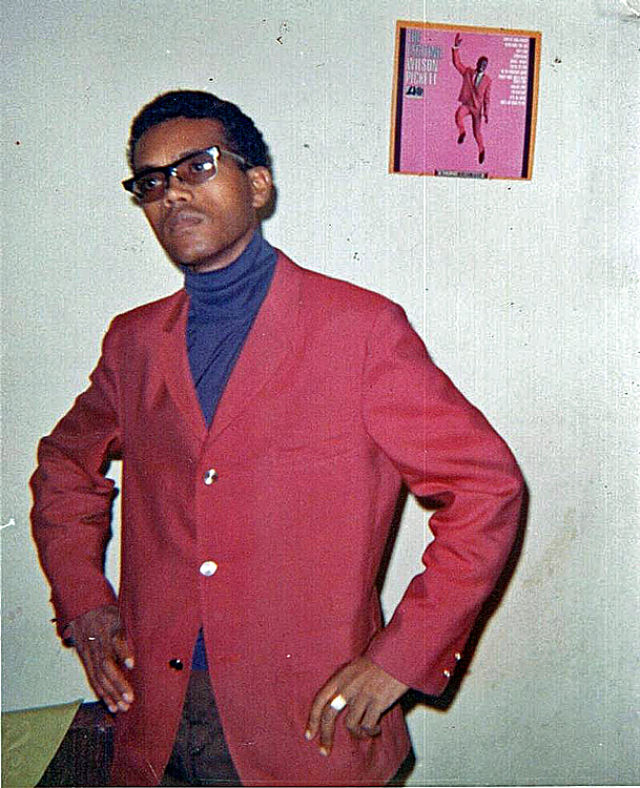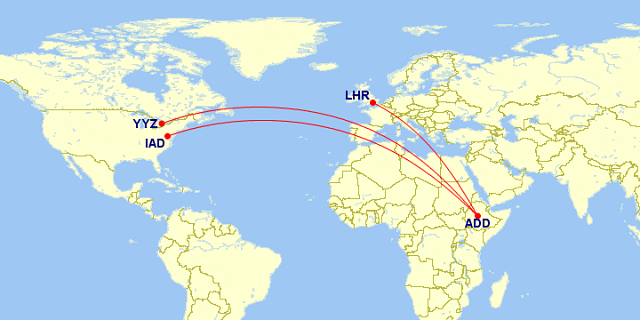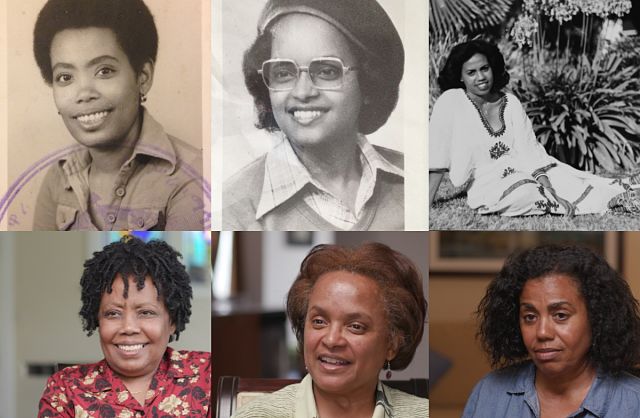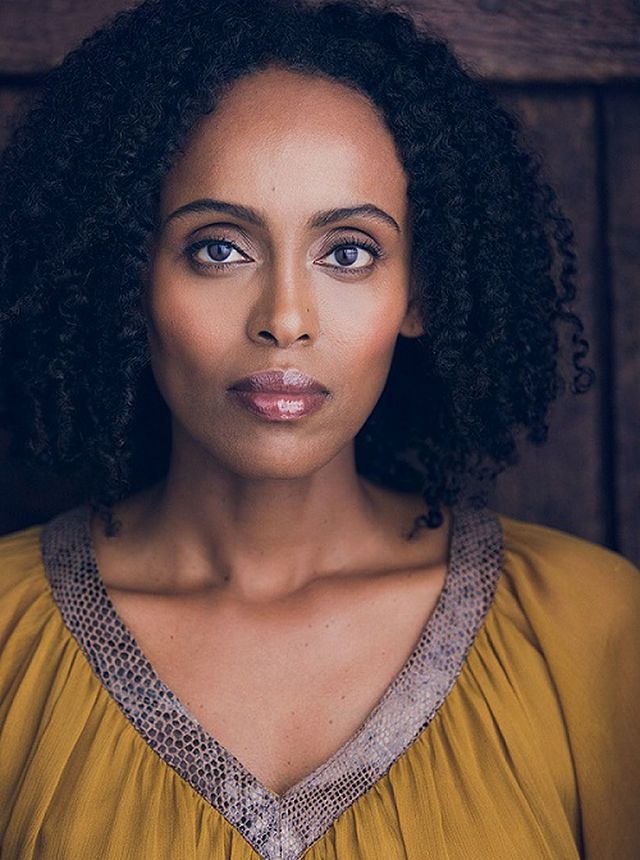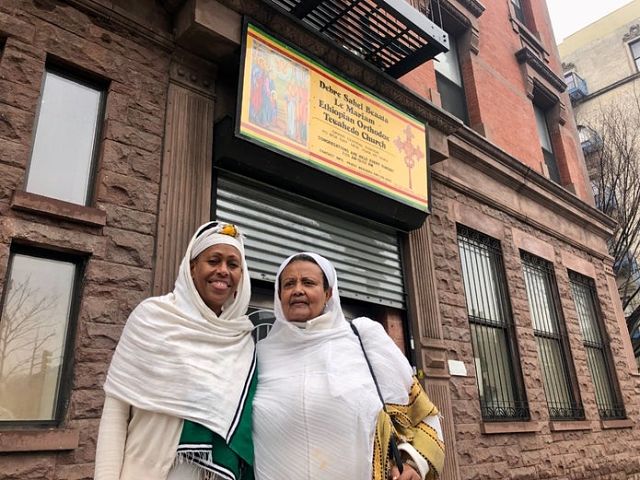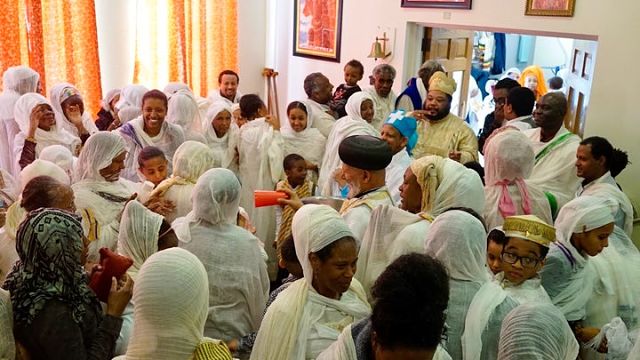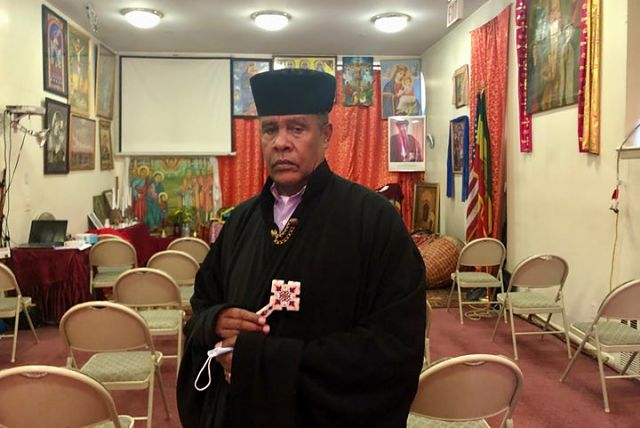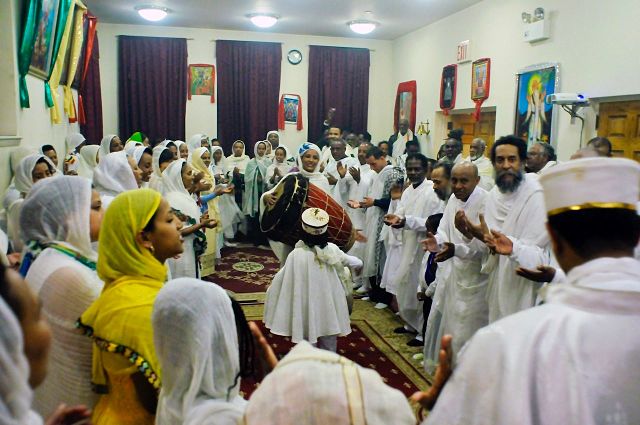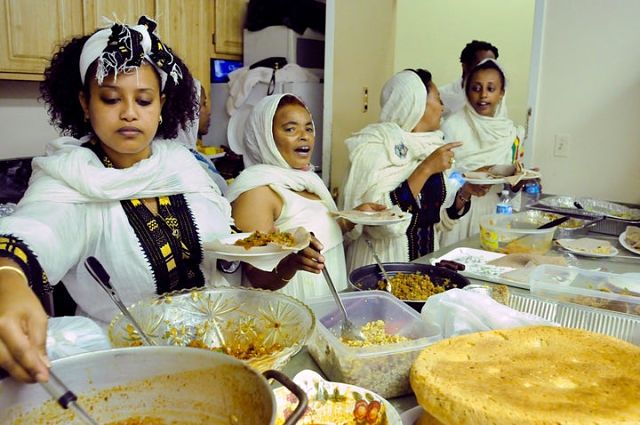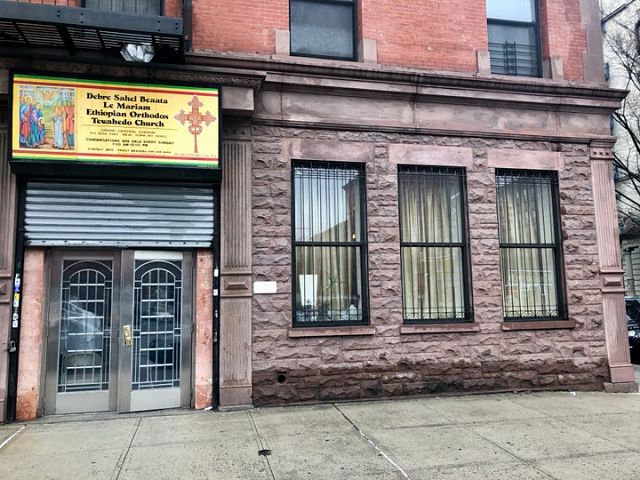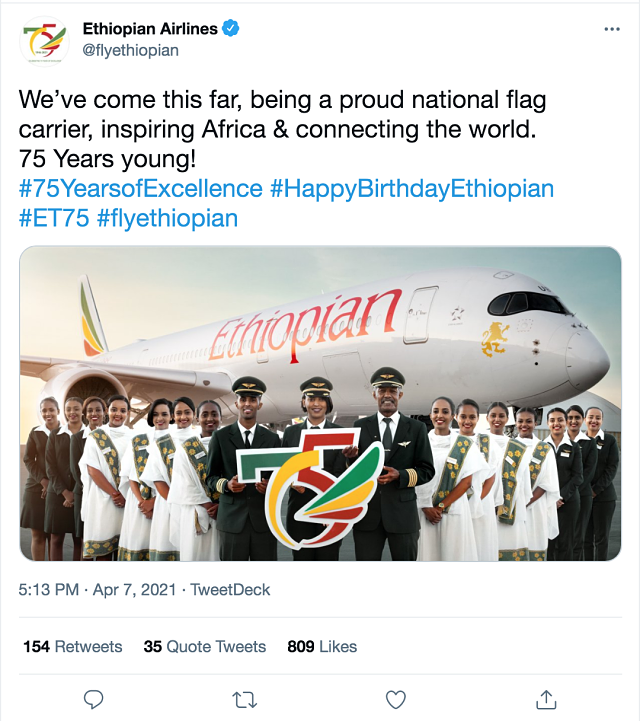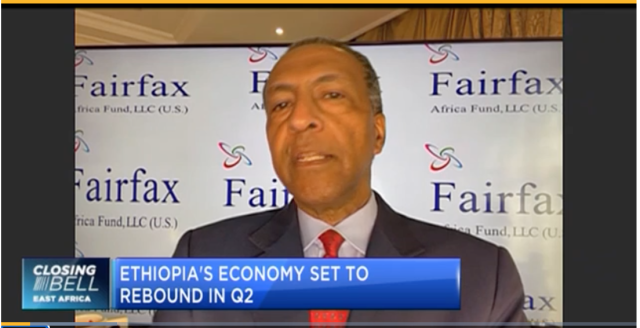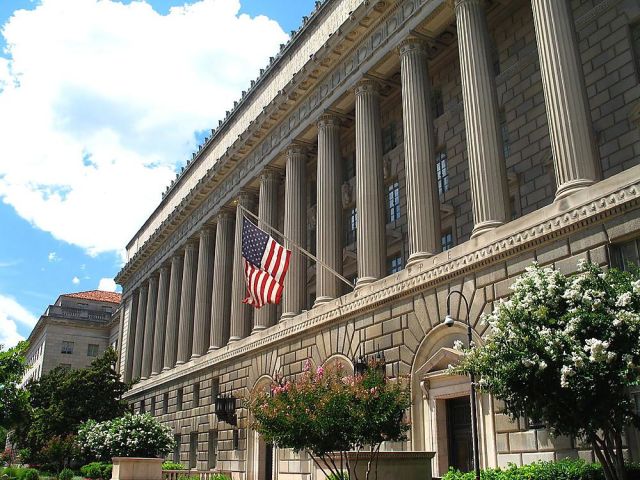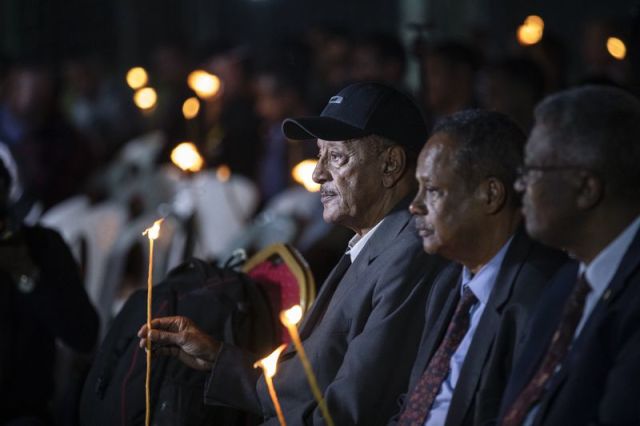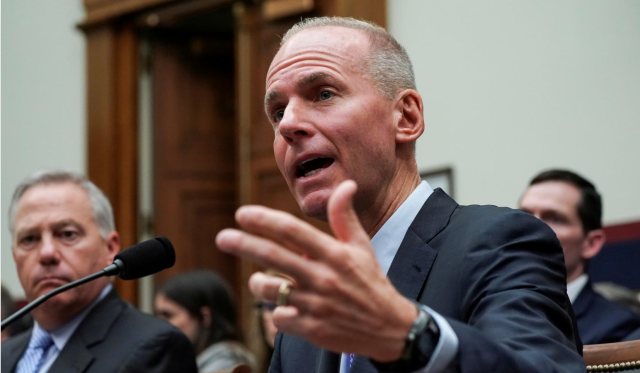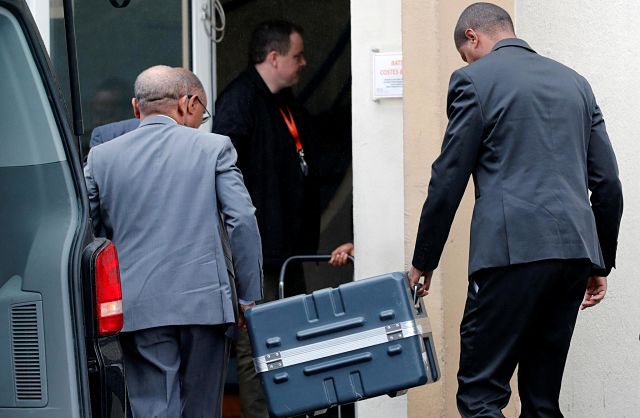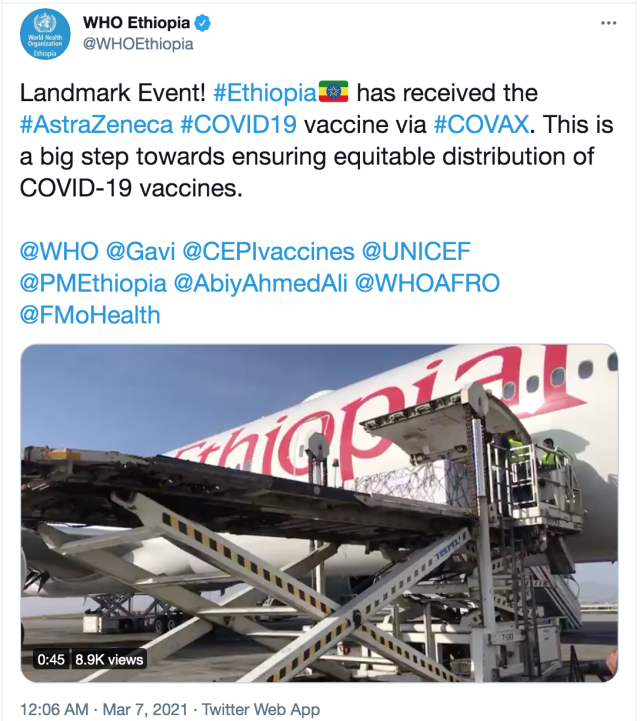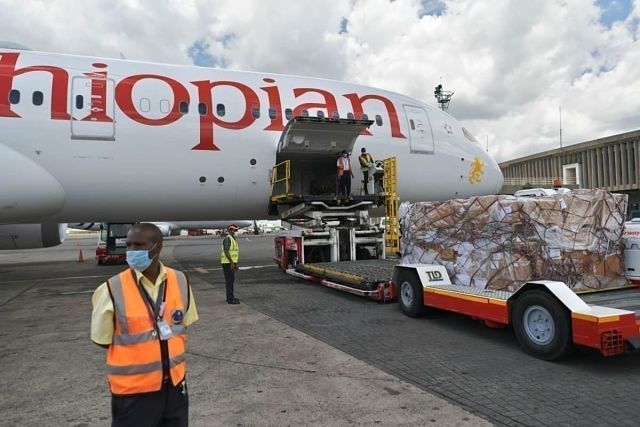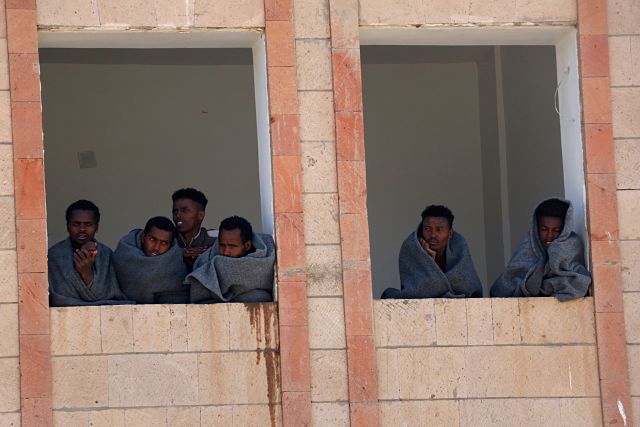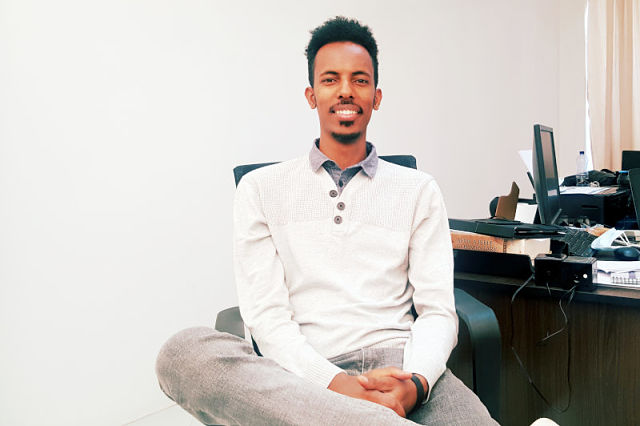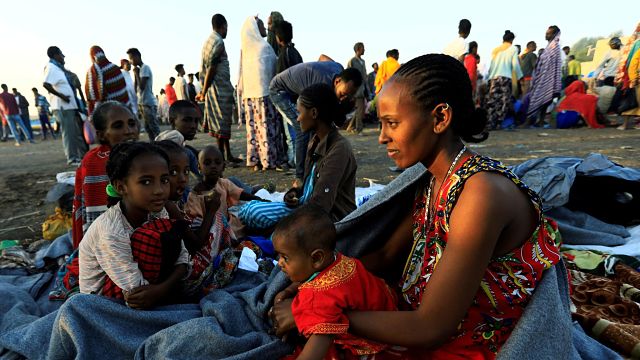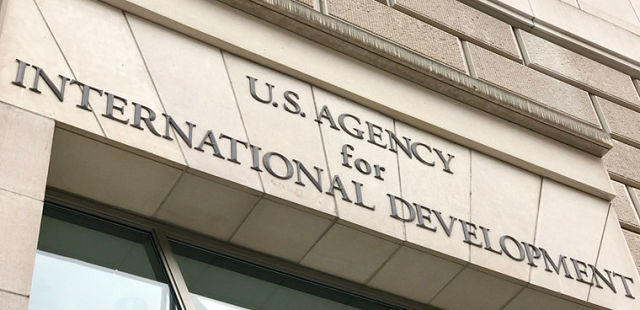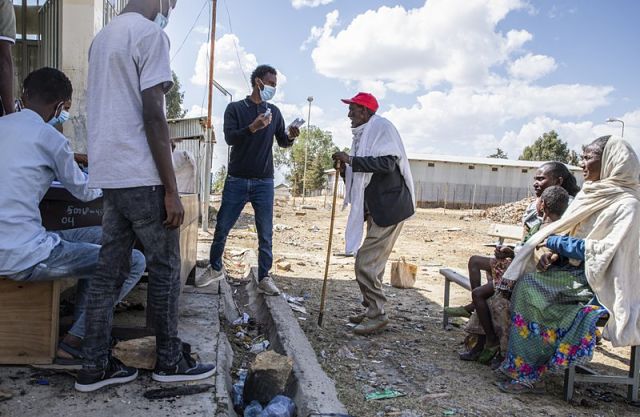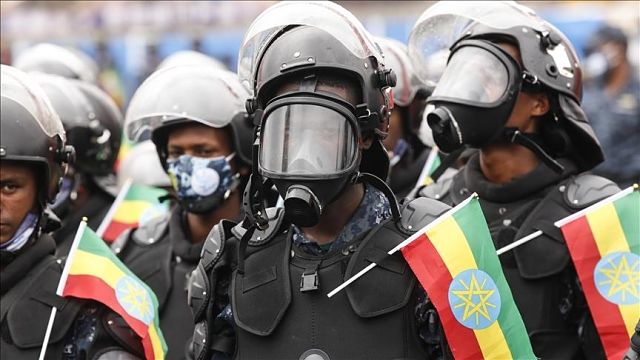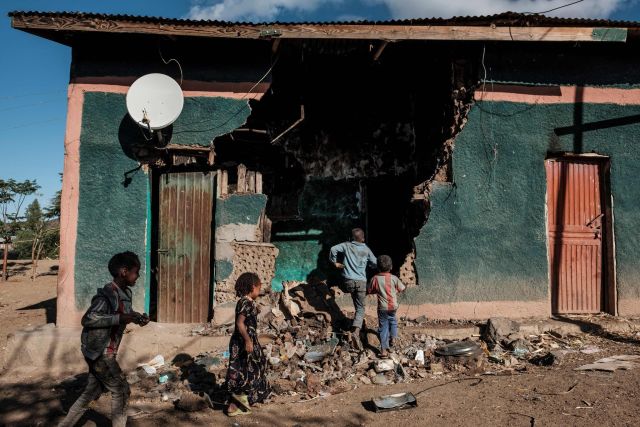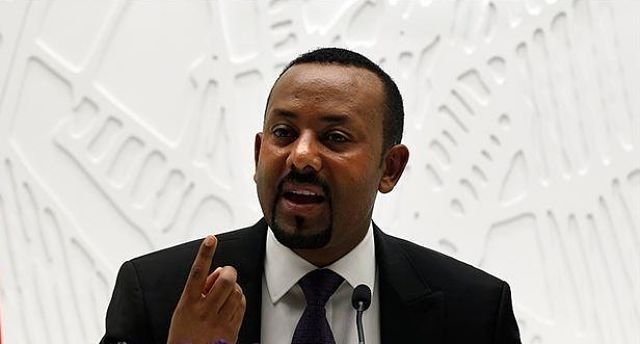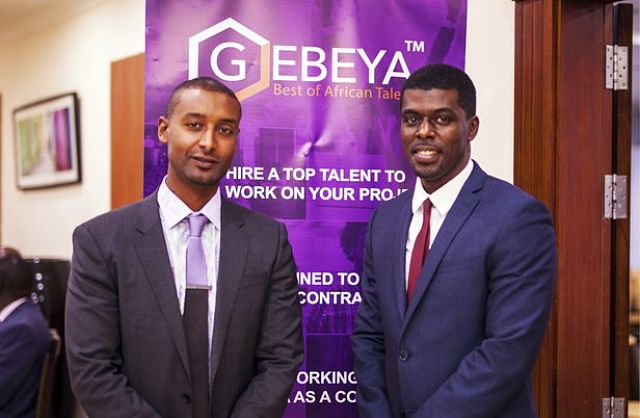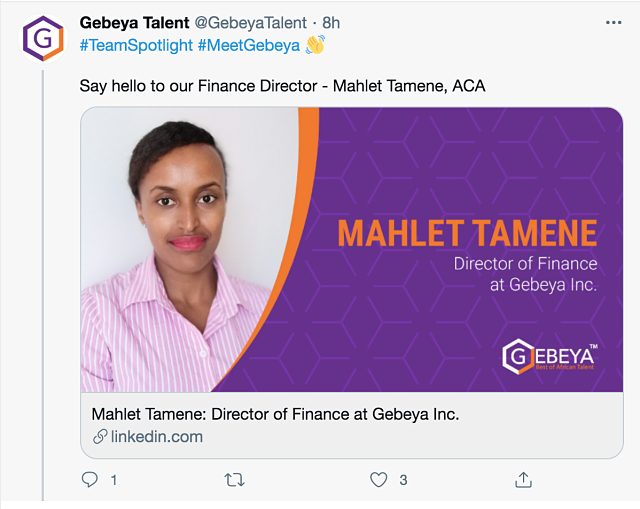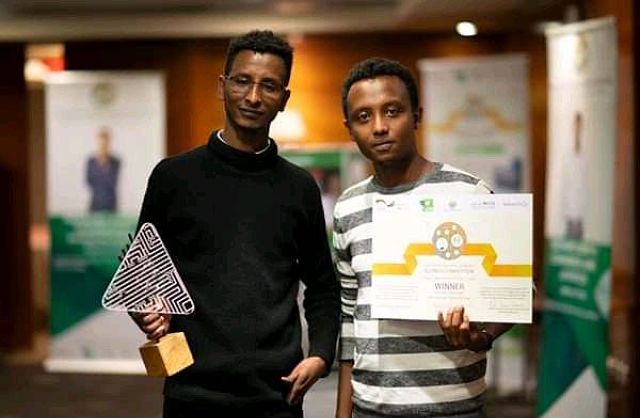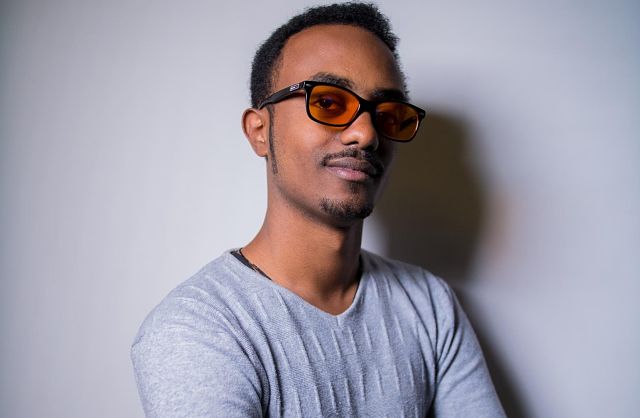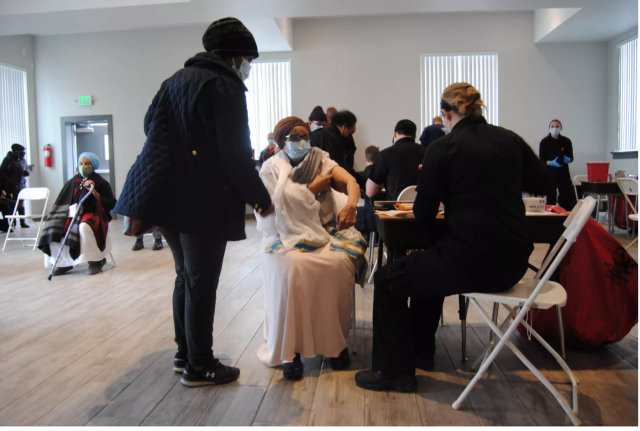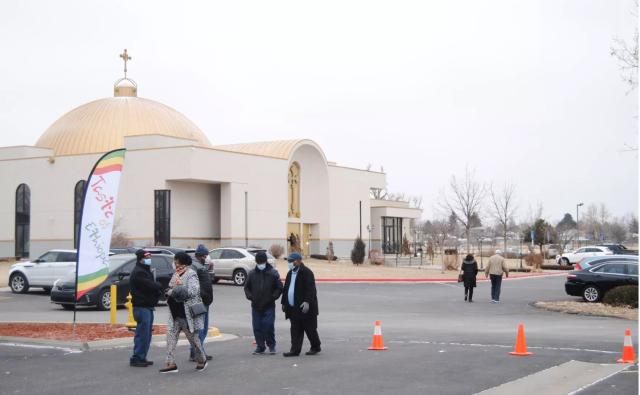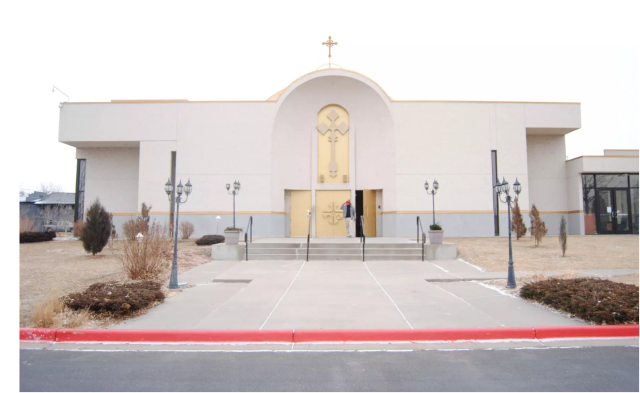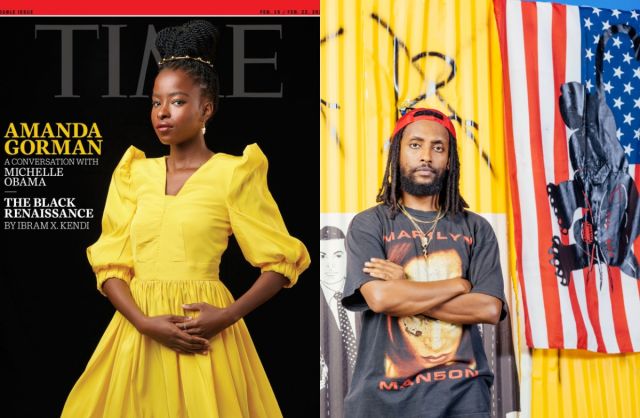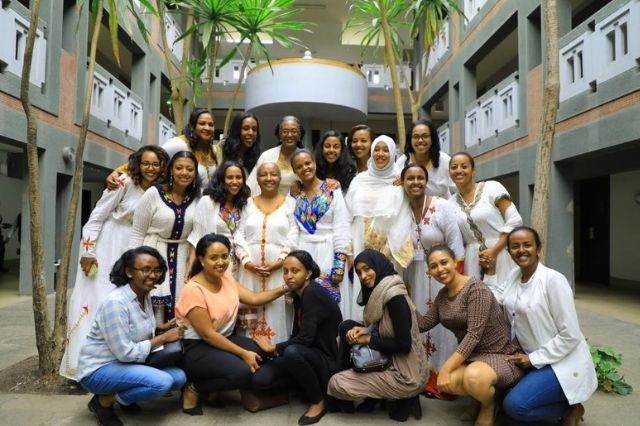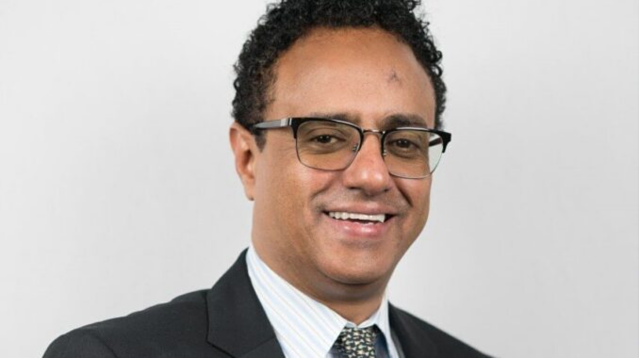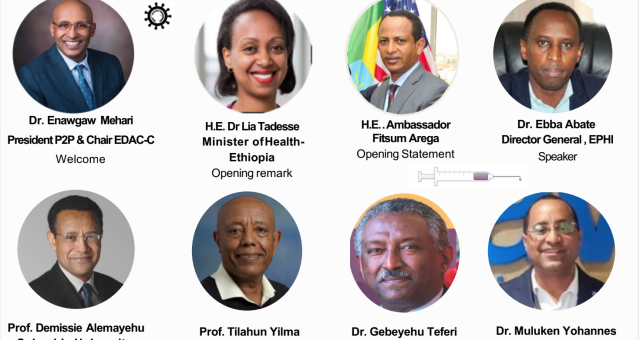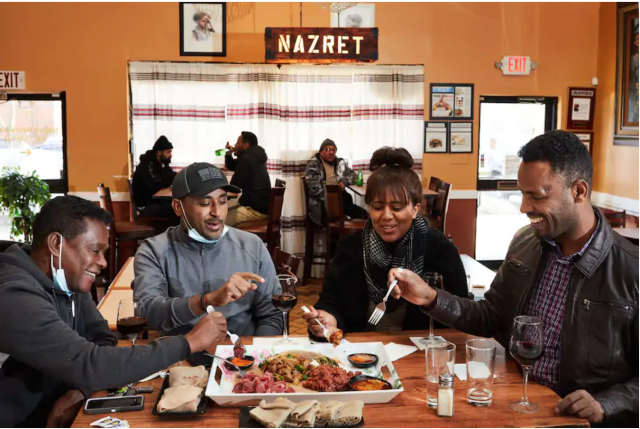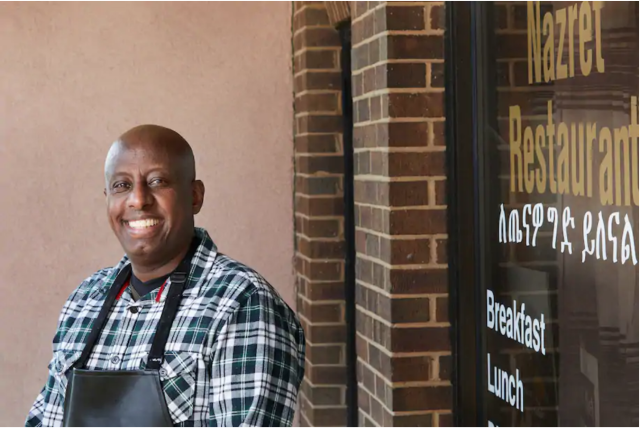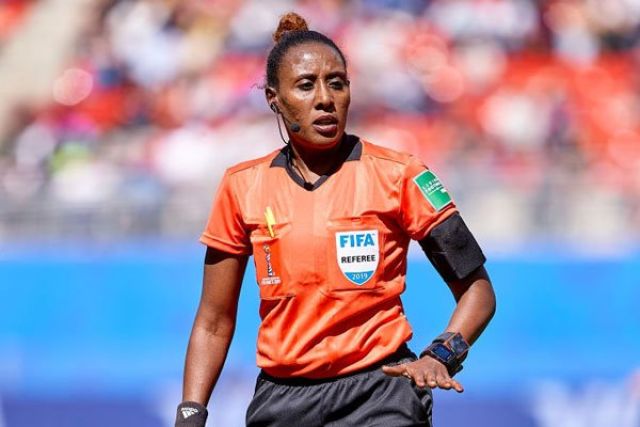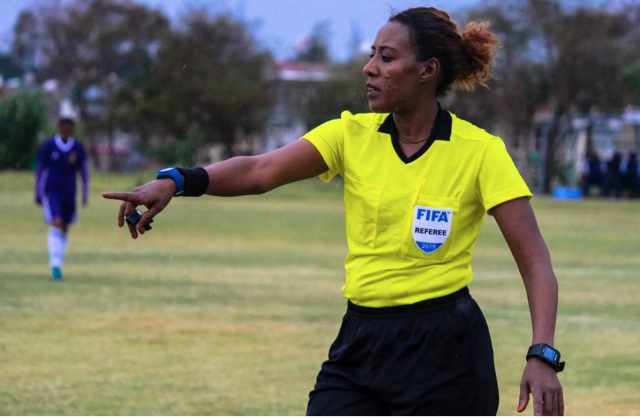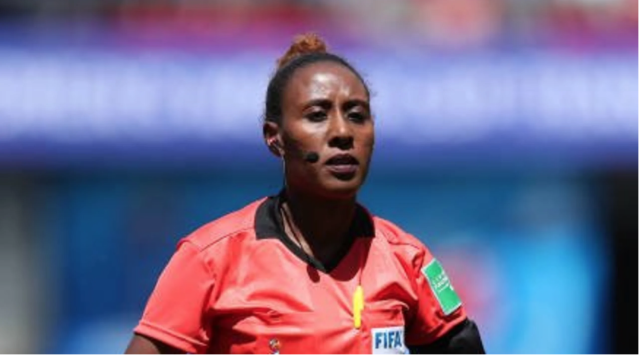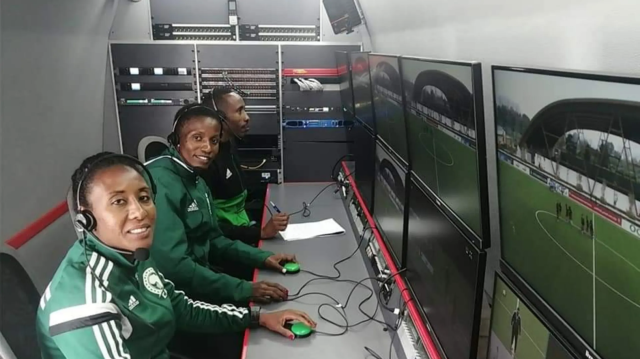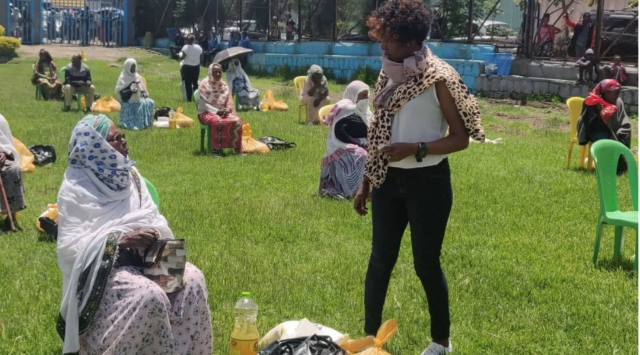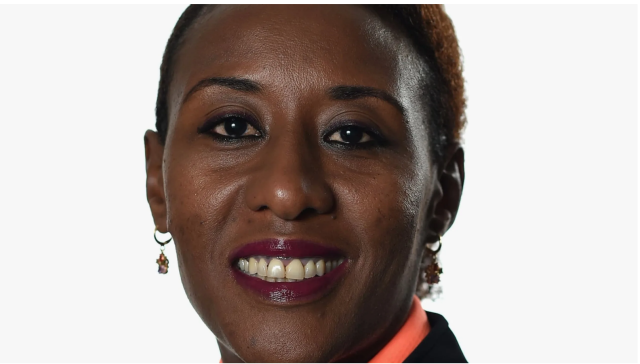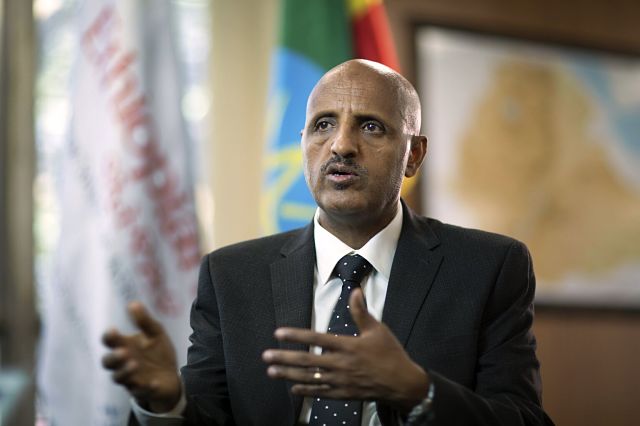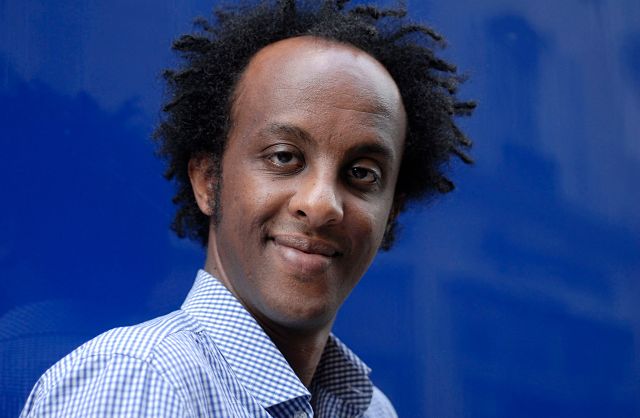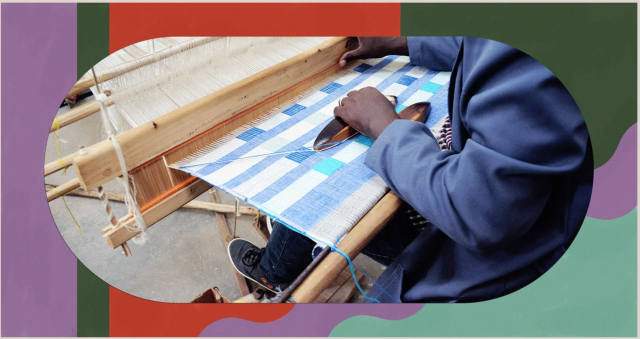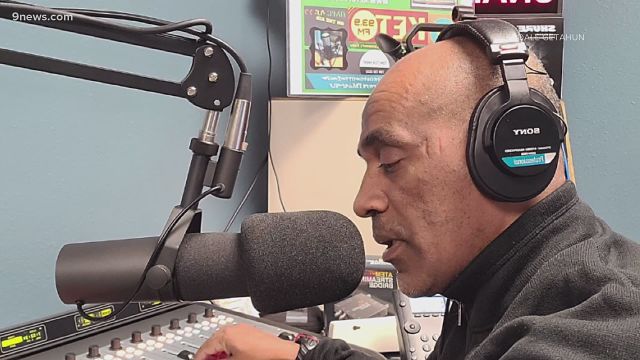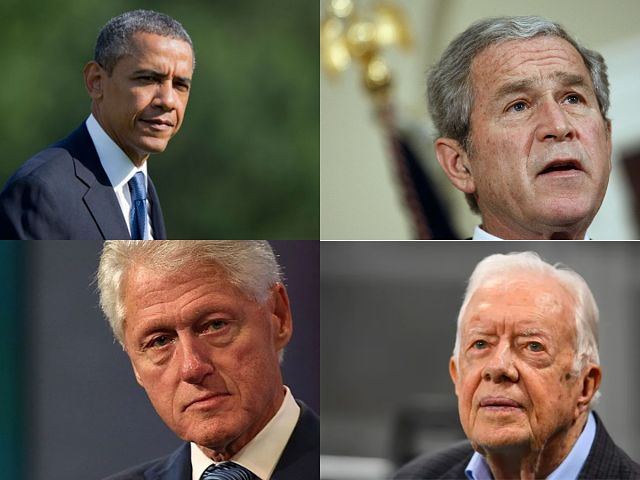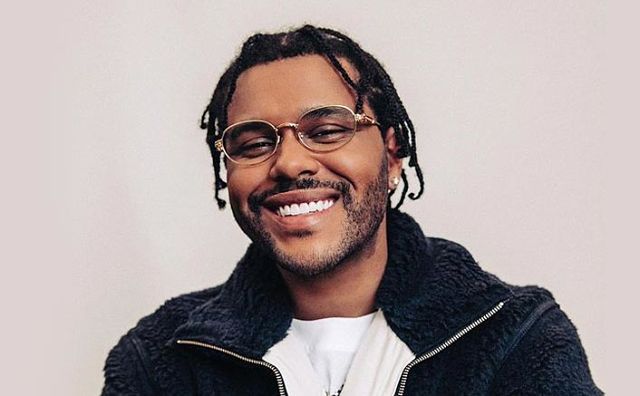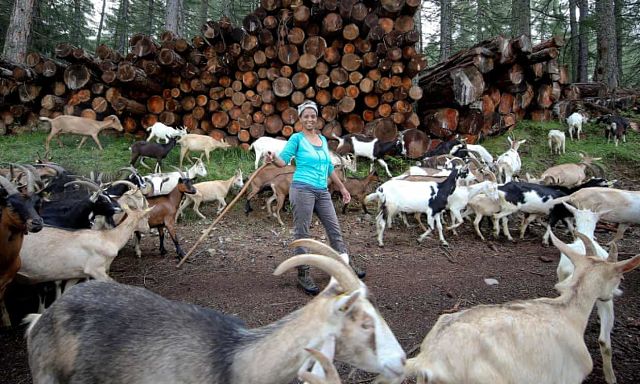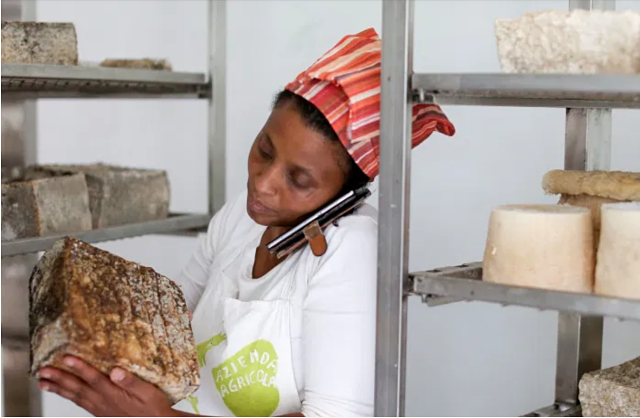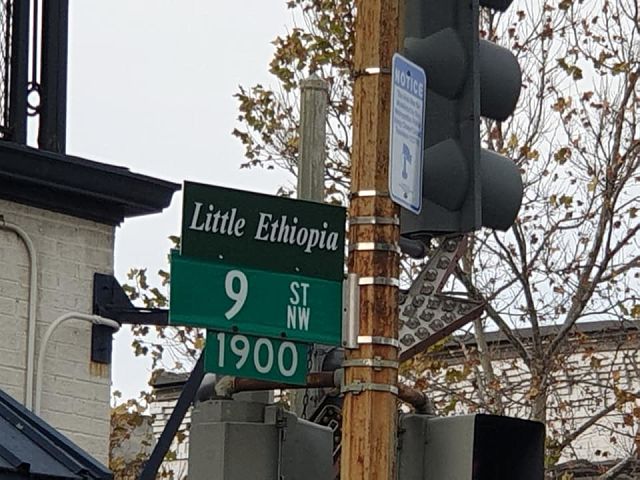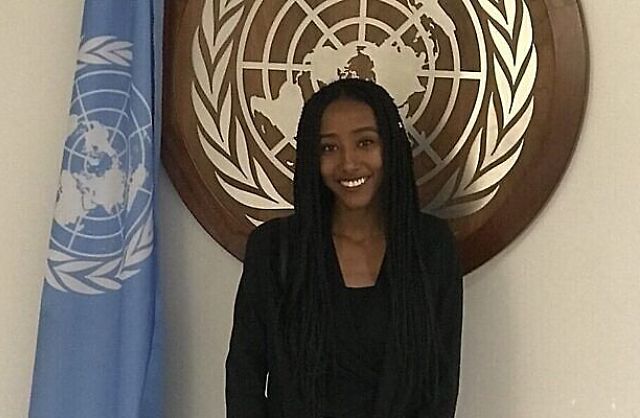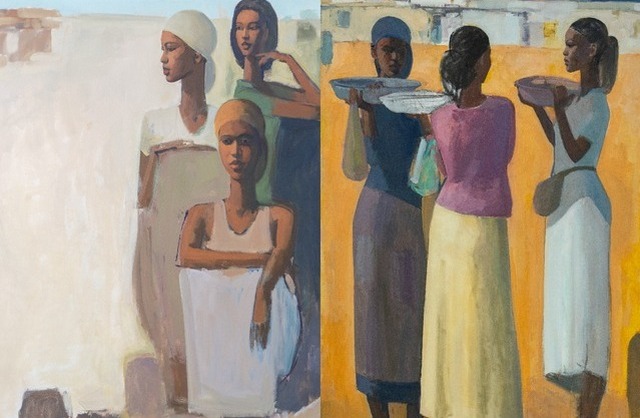 Tadesse Mesfin, Pillars of Life: Guleet VI (2021) and Nibbles (2024). Oil on canvas. © Tadesse Mesfin, Courtesy of the Artist and Addis Fine Art.
Tadesse Mesfin, Pillars of Life: Guleet VI (2021) and Nibbles (2024). Oil on canvas. © Tadesse Mesfin, Courtesy of the Artist and Addis Fine Art.
Tadias Magazine
Publisher’s Note:
At Tadias, we take pride in highlighting the artistic contributions of Ethiopian visionaries who have not only shaped the cultural landscape in Ethiopia but have also made lasting impressions on the global stage. In this exclusive piece, Alemayehu F. Weldemariam, Managing Editor of Africa Today at Indiana University, Bloomington, offers an insightful exploration of the life and work of Tadesse Mesfin—one of Ethiopia’s most distinguished modernist painters.
Tadesse Mesfin’s career, spanning more than five decades, reflects a rare synthesis of tradition and innovation, mentorship and mastery. As a professor at the Addis Ababa University Alle School of Fine Arts and Design, he has played a pivotal role in shaping generations of Ethiopian artists. His unique aesthetic, influenced by both Ethiopian artistic heritage and his academic studies abroad, has resulted in a visual language that is distinctly his own—one that honors the resilience and dignity of Ethiopian women, a central theme in his acclaimed Pillars of Life and Column of Rhythm series, which he describes as his way of paying homage to them.
Through this article, Weldemariam eloquently captures Mesfin’s enduring impact on Ethiopian modernism. The artist’s celebrated Pillars of Life series stands as a testament to his ability to elevate everyday subjects to the realm of the monumental, ensuring their place in the broader narrative of contemporary African art.
We invite our readers to explore this in-depth analysis of Tadesse Mesfin’s artistic journey and to appreciate the ways in which his work bridges past and present, local and global, realism and abstraction. His story is a reminder that art, at its best, serves as both a mirror of society and a beacon for the future.”
— Liben Eabisa, Publisher, Tadias Magazine
—
Tadesse Mesfin and Ethiopian Modernism: Bridging Tradition and Innovation
By Alemayehu F. Weldemariam, Indiana University, Bloomington
Updated: June 1st, 2025
TADIAS – Tadesse Mesfin (b. 1953, Woldiya, Ethiopia) is one of the most distinguished figures in Ethiopian modernist painting. His career, spanning more than five decades, has not only enriched Ethiopian visual culture but has also left an indelible mark on generations of artists through his teaching at the Addis Ababa University Alle School of Fine Arts and Design. As both a painter and an educator, Mesfin embodies a dual legacy—one that has shaped the artistic direction of Ethiopian modernism and another that has mentored pioneering Ethiopian painters, including Addis Gezehagn, Ermias Kifleyesus, Fikru Gebremariam, Merikokeb Berhanu, and Tesfaye Urgessa.
Mesfin’s early studies at the Alle School of Fine Arts and Design placed him under the mentorship of Gebre Kristos Desta, the venerated Ethiopian modernist whose synthesis of European abstraction and Ethiopian iconography profoundly influenced Mesfin’s aesthetic trajectory. During this formative period, Mesfin also engaged with Skunder Boghossian’s innovative use of parchment scrolls, a technique that significantly impacted Ethiopian modernism (Giorgis 2019, 162). His artistic journey was ultimately shaped by two pivotal educational experiences that bridged Ethiopian modernism and Soviet-era Russian academic training.
Expanding his artistic foundations, Tadesse Mesfin pursued advanced training at the Soviet Union’s Leningrad Academy of Painting, Architecture, and Sculpture (now the Repin Institute of Arts), where he earned his MFA in painting. For Mesfin, his studies in Leningrad (now St. Petersburg) marked the realization of a long-held artistic aspiration—a rare opportunity to immerse himself in the works of Vasily Surikov and Ilya Repin, two of the most formidable figures in Russian academic realism. Renowned for their monumental historical compositions, Surikov and Repin fused technical precision with narrative complexity, capturing the struggles, resilience, and collective experiences of ordinary people. Their ability to render history with emotive immediacy and psychological depth left an indelible impression on Mesfin, shaping his understanding of the artist’s social and moral responsibilities.
Immersed in both Russian academic realism and modernist abstraction, Mesfin refined his technical mastery while deepening his engagement with form and structure. Upon his return to Ethiopia in 1984, he embarked on a long and influential tenure as a professor at the Alle School of Fine Arts and Design, where he played a critical role in shaping subsequent generations of Ethiopian artists.
Mesfin’s artistic trajectory is deeply intertwined with Ethiopia’s shifting political and ideological landscape, particularly under the Derg regime. As Elizabeth W. Giorgis (2019, 209) notes, he and his contemporary Esseye Gebremedhin experienced firsthand the constraints imposed on artistic expression by a government that sought to align art with its revolutionary ideology. Works that failed to reflect the state’s ideological commitment were rejected.
During the height of repression from 1978 to 1991, Mesfin and his contemporaries, including Gebremedhin, developed two distinct bodies of work: official propaganda art that conformed to the government’s expectations and private studio works that remained outside state control (Giorgis 2019, 210). This duality reflects the broader tension between state control and artistic autonomy, as artists outwardly complied with the demands of the regime while privately exploring themes beyond the revolutionary aesthetic. However, much of this personal work has been lost to time and political upheaval, leaving an incomplete record of their artistic resistance. Despite the constraints imposed during the Derg era, Mesfin’s artistic legacy transcends official commissions and ideological restrictions. His later artworks, particularly the Pillars of Life and the Column of Rythm series, reflect a profound return to his deeper artistic concerns—celebrating the resilience and dignity of Ethiopian women in market spaces, a subject he describes as “his way of paying homage to Ethiopian women.”
Tadesse Mesfin emphasizes that an artist is always making choices, unlike a camera that indiscriminately captures everything in a scene. Rather than passively recording, an artist carefully selects figures, poses, and compositions to create a powerful and intentional image. He points to Ethiopian open-air market areas like the Mercato as an example of constant motion, where nothing remains still. Goods are always arriving, and people move energetically through space. The environment is filled with vibrant colors, fine lines, and intricate textures. According to Tadesse Mesfin, capturing not just the visual details but also the energy and essence of such a place in a painting can make it truly impactful.
Mesfin’s sustained engagement with the female figure reflects both an artistic preoccupation and a conceptual framework through which he explores form, movement, and expression. He articulates this fascination, stating: “The whole history of art is the history of the human figure because it's the most dynamic nature—you know, the feet, the hands, the facial expression, everything is an endless expression. The figure never ends.” For Mesfin, the female body in particular serves as a solution to the problem of plasticity in art, offering a richness of gesture, rhythm, and structural composition that allows for infinite exploration. His work does not merely depict the female form but rather elevates it as a fundamental element of artistic inquiry, bridging representation and abstraction while paying homage to the resilience and presence of Ethiopian women.
Distinct Visual Language and Cultural Continuity
Tadesse Mesfin’s mature work reflects a profound synthesis of figuration, abstraction, and Ethiopian visual traditions, establishing a distinctive language that bridges cultural heritage and modernist innovation. His celebrated Pillars of Life series, arguably his most defining body of work, delves into themes of womanhood, labor, and resilience, focusing particularly on market women—small-holder vendors whose essential yet often overlooked presence forms the backbone of Ethiopian urban life. Rendered with elongated, graceful forms, these figures defy gravity, evoking an architectural rhythm reminiscent of Ethiopian church pillars and ancient stelae. This deliberate distortion of form and perspective is informed by both the Ethiopian iconographic tradition—which consciously rejects Western linear perspective—and the modernist experiments of artists like Amedeo Modigliani and Diego Rivera. Yet, Mesfin’s aesthetic vision remains unmistakably Ethiopian, deeply embedded in local aesthetics, cultural symbols, and a rich artistic lineage.
A particularly distinctive aspect of Mesfin’s approach is his integration of Amharic script into his figurative compositions, a practice rooted in Ethiopia’s modernist traditions. His figures, rendered with rhythmic linearity, often evoke the fluid contours of Amharic letters—a deliberate fusion of language and form that underscores the interplay between visual art and textual expression. This calligraphic abstraction transforms the human figure into a poetic inscription of cultural identity. As Mesfin himself states: “The figures are the most important aspect of my work because of this—they are distinctly Ethiopian in every way. They are my alphabet and my language, and I will continue to master them in my paintings.”
Mesfin’s painterly technique combines loosely defined brushstrokes with refined compositions that preserve the dignity and expressiveness of his subjects. His color palette, inspired by the Ethiopian landscape and traditional textiles, oscillates between earthy ochres, deep siennas, vivid blues, and vibrant greens. These hues are not merely aesthetic choices but symbolic emblems of history, resilience, and cultural continuity, anchoring his compositions within a specific narrative while elevating them to a universal plane.
His backgrounds, often distilled into abstracted color fields, create an atmosphere of timelessness, suspending his figures in an ambiguous, meditative space. This flattening of depth echoes Ethiopian church murals, where spatial hierarchy is dictated not by perspective but by symbolic importance. In Mesfin’s paintings, the market women are not confined within conventional settings; rather, they hover between presence and monumentality, embodying an eternal, almost mythic quality.
At the heart of Mesfin’s artistic vision lies a commitment to cultural preservation, a reverence for tradition amid the pressures of globalization and modernity. His paintings function as visual archives, chronicling the lives of Ethiopian market women not merely as subjects of observation but as the economic and social pillars of their communities. By rendering these women on a monumental scale, he reclaims their visibility and affirms their dignity, positioning them as symbols of resilience and continuity.
This thematic dedication to cultural preservation was profoundly shaped by Mesfin’s travels across Southern and Eastern Ethiopia following his return from Russia in 1984. Immersing himself in the region’s vibrant market culture, he encountered women adorned in bright colors, selling agricultural produce in bustling town squares that also functioned as social hubs—spaces where stories were shared, friendships rekindled, and communal ties reinforced. The multisensory vibrancy of these markets left a deep impression on him, compelling him to translate these experiences into his paintings.
Mesfin’s artistic inquiry extended beyond observational studies; his participation in the People- People Cultural World Tour organized by the Derg, during which he conducted research on textile traditions, traditional attire, and indigenous artistic practices, further enriched his ethnographic sensibility. This immersion sharpened his approach to representation, transforming his work into a powerful meditation on the endurance and cultural significance of Ethiopian women.
His thematic focus places him in dialogue with global modernists who have dignified everyday laborers—whether in Rivera’s heroic murals of Mexican workers or Alice Neel’s psychologically astute portraits of working-class individuals. Yet, while Rivera’s murals are charged with political rhetoric and Neel’s portraits delve into psychological introspection, Mesfin’s approach is one of quiet reverence. His work asserts presence itself as a form of resistance, celebrating the strength and cultural continuity of Ethiopian women within a rapidly changing world. Through this nuanced visual language, Mesfin affirms the capacity of art to reclaim cultural memory, transforming the ordinary into the monumental.
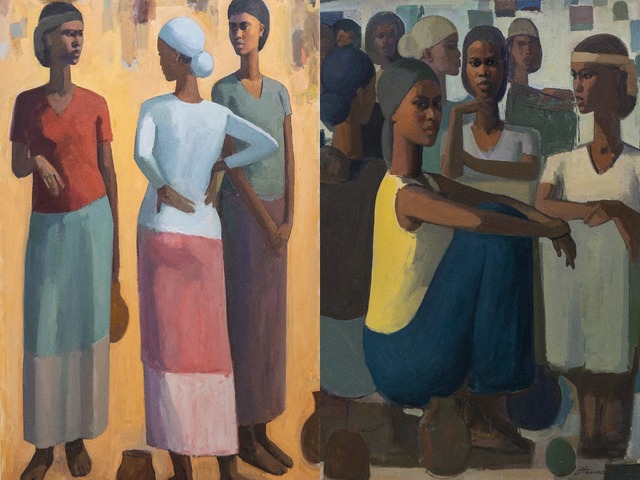
Tadesse Mesfin, Column of Rhythm II (2022) and Column of Rhythm VII (2022). Oil on canvas. Column of Rhythm II: 76 3⁄4 x 44 7⁄8 in. (195.00 x 114.00 cm); Column of Rhythm VII: 57 1⁄2 x 44 7⁄8 in. (146.00 x 114.00 cm). © Tadesse Mesfin, Courtesy of the Artist and Addis Fine Art.
Tadesse Mesfin’s Column of Rhythm II exemplifies his masterful approach to figurative composition, transforming scenes of everyday life into profound meditations on dignity, resilience, and communal identity. The painting’s central figures—three women standing in quiet, contemplative poses—exude a monumental grace reminiscent of classical portraiture, yet their simplified, elongated forms resonate with the modernist tendency to strip away the superfluous in pursuit of essential truths. Against a warm, ochre backdrop rendered in softly blurred abstraction, the women emerge as pillars of strength, their bodies delicately shaded to suggest both volume and vulnerability without succumbing to harsh contrast. Their colorful attire—muted reds, blues, pinks, and greens offers a striking yet harmonious counterpoint to the earthy tones enveloping them, evoking both the vibrancy of cultural identity and the enduring beauty of simplicity. Mesfin’s treatment of the background, dissolving into a haze of gentle ambiguity, serves to intensify the presence of the figures, positioning them as timeless embodiments of solidarity and grace. While the clay pots at their feet allude to domestic labor, their assured, upright posture transcends the quotidian, elevating them to the status of cultural icons. This synthesis of the everyday and the eternal reflects Mesfin’s broader thematic preoccupation with female empowerment—an aesthetic homage to the strength and elegance of Ethiopian women that echoes both modernist ideals and indigenous visual traditions. In Column of Rhythm II, Mesfin reimagines ordinary figures as majestic columns of endurance and beauty, capturing not only the physical presence of his subjects but the ineffable rhythm of their shared existence.
Tadesse Mesfin’s Column of Rhythm VII is a compelling testament to his ability to transform scenes of ordinary sociality into works of profound aesthetic and cultural resonance. The painting presents a group of women arranged in a seemingly casual yet meticulously balanced composition, their interlocking postures and expressions conveying a subtle dynamism within stillness. The artist’s preference for elongated, simplified forms lends the figures a statuesque quality, emphasizing their presence as pillars of strength and unity against a richly textured, abstracted background. This background, composed of layered blocks of cool blues, greens, and earthy browns, dissolves into an atmospheric haze that simultaneously hints at both urban complexity and pastoral tranquility.
Mesfin’s mastery of color is particularly striking here, as he juxtaposes the women’s muted yet vivid attire yellows, blues, whites, and dark hues—against the diffused, mosaic-like backdrop. The careful modulation of light and shadow imbues the figures with a soft, almost ethereal glow, their skin tones harmonizing with the surrounding environment while remaining distinctly vibrant. The expressions of the women range from calm confidence to contemplative seriousness, suggesting a narrative of collective resilience and quiet defiance.
This work continues Mesfin’s ongoing exploration of female empowerment, portraying Ethiopian women as the embodiment of grace, strength, and cultural continuity. The prominence of their figures against the fragmented background speaks to their enduring significance amid societal changes and disruptions. Moreover, the subtle variations in posture and gaze evoke a communal dialogue, a shared yet unspoken understanding that transcends the individual.
In Column of Rhythm VII, Mesfin transcends mere representation to capture something deeper—an assertion of dignity and presence that elevates the everyday to the realm of the timeless. The painting is not only a celebration of the beauty and resilience of Ethiopian women but also a testament to the artist’s ability to distill universal themes from the particularities of local experience.
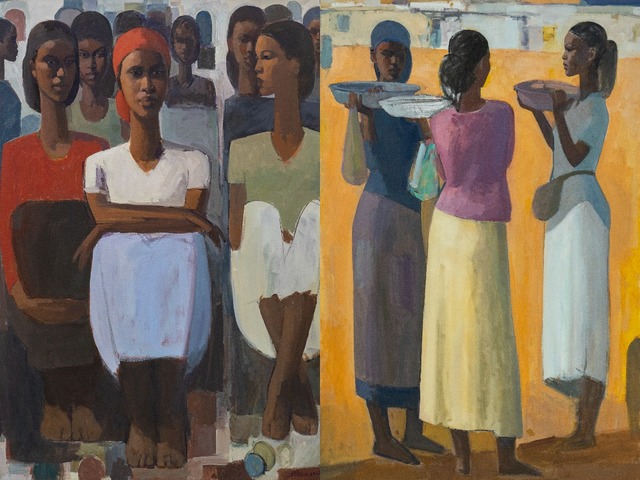
Left: Tadesse Mesfin, Column of Rhythm VIII, 2022 Oil on canvas, 57 1⁄2 x 44 7⁄8 in. (146.00 x 114.00 cm). Right: Tadesse Mesfin, Nibbles, 2024 Oil on canvas, 70 7⁄8 x 47 1⁄4 in. (180.00 x 120.00 cm) © Tadesse Mesfin, Courtesy of the Artist and Addis Fine Art.
Tadesse Mesfin’s Column of Rhythm VIII continues his eloquent visual meditation on female solidarity, dignity, and cultural resilience. The painting features a striking composition of women seated in calm, deliberate postures, their bodies arranged with an effortless symmetry that evokes both unity and individuality. At the center, a woman with a red headscarf gazes directly at the viewer, her expression a blend of quiet strength and gentle defiance, suggesting leadership or a protective presence within the group. The figures' elongated forms, a hallmark of Mesfin’s style, are rendered with a sculptural solidity that simultaneously conveys grace and steadfastness. Their minimalist attire—white, red, green—contrasts subtly against the deep, earthy tones of the background, which dissolves into a mosaic of abstracted faces and figures, hinting at a broader social context or perhaps the weight of collective memory. Mesfin’s sophisticated use of color, light, and shadow imbues the figures with a luminous presence, elevating them beyond mere representation to symbols of resilience and communal identity. The subtle interplay of gazes and gestures between the women evokes a dialogue of mutual understanding and shared purpose, their serenity suggesting an unyielding inner strength despite the complexities hinted at by the fragmented, textured backdrop. Once again, Mesfin transforms the ordinary into the monumental, creating a visual symphony that asserts the centrality of Ethiopian women as pillars of cultural continuity and emotional fortitude in an ever shifting world.
Tadesse Mesfin’s Nibbles (2024), an oil on canvas masterpiece measuring 70 7⁄8 x 47 1⁄4 inches (180 x 120 cm), captures his refined ability to monumentalize the ordinary with a painterly elegance that radiates both warmth and dignity. Set against a luminous ochre background reminiscent of sunlit village squares or vibrant marketplaces, three women stand in graceful conversation, their elongated figures rendered with the sculptural precision that has become Mesfin’s signature. Their postures, subtly varied yet harmoniously balanced, convey both individuality and collective strength, as if embodying a quiet resilience cultivated through communal ties and labor. The artist’s palette, composed of muted pinks, blues, yellows, and whites, interacts beautifully with the sun-soaked environment, suggesting the timeless vitality of daily life. The bowls they carry—offered with calm determination symbolize both sustenance and labor, hinting at themes of nourishment, exchange, and social interconnectedness. Mesfin’s sensitive treatment of light and shadow lends the figures a serene, almost ethereal quality, their composed expressions exuding a dignified authority rooted in shared experience and cultural continuity. By elevating the everyday ritual of offering and exchange to the level of artistic grandeur, Mesfin continues his celebration of Ethiopian women as pillars of strength and beauty, affirming their central place within both their immediate communities and the broader cultural landscape. Nibbles is a testament to Mesfin’s mastery of form and color, as well as his profound empathy for his subjects, rendered with a sensitivity that transcends the canvas and speaks directly to the human condition.
Tadesse Mesfin’s Pillars of Life: Guleet VI (2021), featured on the cover, epitomizes his masterful ability to infuse the everyday with a sense of timeless grandeur. Rendered with his signature elongated forms, the painting presents three women aligned vertically, their serene postures and contemplative expressions conveying both individual grace and collective resilience. The figures’ elegant simplicity is enhanced by Mesfin’s exquisite handling of color, shadow, and light, lending them a luminous presence against a minimalistic, almost ethereal background of soft beiges, whites, and faint blues. This understated backdrop serves not only to emphasize the figures’ solidity and grace but also to suggest a delicate tension between presence and absence, permanence and change. The subtle, abstracted forms scattered at their feet possibly stones or earthen structures—hint at themes of cultural continuity, groundedness, and rootedness. Mesfin’s choice of palette and composition draws the viewer’s attention to the calm strength of the women, who appear both part of and distinct from the landscape they inhabit. The vertical arrangement of their bodies evokes both unity and hierarchy, transforming them into pillars of life and cultural resilience. Once again, Mesfin demonstrates his ability to elevate ordinary moments into visual poetry, presenting Ethiopian women as embodiments of grace, strength, and endurance standing gracefully against the inevitable currents of time and circumstance. Pillars of Life: Guleet VI confirms Mesfin’s place as a leading voice in contemporary African art, his work serving as both a celebration of beauty and a meditation on the profound cultural significance of everyday life.
Legacy and Global Recognition
Tadesse Mesfin’s impact on Ethiopian art extends far beyond his own masterful compositions. As a revered teacher at the Alle School of Fine Arts and Design (1984–2019), he has mentored generations of Ethiopian artists, most notably Fikru Gebremariam, one of the country’s most celebrated contemporary painters. Under Mesfin’s guidance, Gebremariam developed his own distinct visual language while drawing from the foundational skills imparted by his mentor.
In Gebremariam’s words: “Tadesse Mesfin became my teacher, mentor, guiding light, a friend, and source of inspiration since I met him while I was a third-year student at the Addis Ababa School of Fine Arts. Through his guidance, as an artist, not only did I internalize the subjects taught but was also able to develop essential life skills.”
The late Donald Levine, a renowned sociologist and Ethiopianist from the University of Chicago, aptly described Gebremariam’s art as a masterful blend of geometric abstraction and Ethiopian visual traditions, enriched by Mesfin’s teachings. Levine noted that Gebremariam’s paintings convey “a blend of rich hues, emotional intensity, immediacy of impact, and a touch of austerity… hints of Ethiopian miniatures and church paintings, imbued with African earth tones, incorporating the vibrant garments of Harari women, and capturing the somber mood of much Ethiopian life.” Levine’s observations underscore Mesfin’s enduring influence, not only in imparting technical skill but in nurturing an artistic vision rooted in Ethiopian cultural identity. Mesfin’s pedagogical approach has been one of guiding rather than imposing, allowing his students to cultivate their own artistic voices while remaining deeply connected to Ethiopian traditions. This capacity to foster individuality within a cultural framework remains one of his most significant contributions to Ethiopian modernism. Artists such as Addis Gezehagn, Ermias Kifleyesus, and Tesfaye Urgessa also owe aspects of their artistic evolution to Mesfin’s mentorship, carrying forward his synthesis of heritage and modernist experimentation.
For much of his career, Mesfin’s influence was most keenly felt within Ethiopian artistic circles, where he was revered as both an artist and a mentor. However, his international recognition remained limited until his association with Rakeb Sile and Mesai Haileleul’s Addis Fine Art, which introduced his work to the global art market. Mesfin’s words poignantly capture the historical isolation of Ethiopian modernists: “We weren’t introduced to the outside world when they arrived because we were simply locked up in Addis. Nobody knew us except each other. But I think they have given us a chance to enter the mainstream—or whatever they call it—to connect with the outside world.”
This partnership with Addis Fine Art marked a transformative moment in Mesfin’s career, facilitating his participation in prestigious platforms such as Artsy and renowned art fairs like Art Dubai and the 1-54 Contemporary African Art Fair. His solo exhibitions, including Where We Coalesce (2024) at Addis Fine Art in Addis Ababa and Vigo Gallery in London, and Column of Rhythm (2022) at Addis Fine Art in London, have been pivotal in establishing his international reputation. Through these exhibitions, Mesfin’s paintings—rooted in Ethiopian cultural narratives yet resonant with universal themes of resilience, dignity, and communal identity—have reached audiences far beyond national borders. Mesfin’s legacy now stands firmly on both national and international stages. His work, once confined to Ethiopian artistic circles, has become a vital contribution to modernist discourse worldwide. As a painter, he has expanded the formal and conceptual possibilities of Ethiopian modernism, while as a mentor, he has ensured the continuity and evolution of the country’s artistic traditions. His ability to distill complex cultural narratives into simple yet profound forms marks him as one of the most significant voices in contemporary African art.
In a rapidly changing world where traditional identities are increasingly under threat, Mesfin’s art serves as both a monument and a meditation—a testament to the quiet dignity of ordinary figures whose presence resonates with the strength of history and beauty. Through his lens, Ethiopian women are not merely subjects; they are symbols of endurance, cultural memory, and grace—pillars of life in every sense of the word.
—
About the Author:
Alemayehu (Alex) Weldemariam is the Managing Editor of Africa Today, a leading journal at Indiana University that focuses on African studies and contemporary issues. He also serves as the Assistant Editor for the IACL-AIDC Blog and is a Fellow at the Center for Constitutional Democracy at the Maurer School of Law. With extensive experience in African affairs, his work bridges academia and real-world impact.
Join the conversation on X and Facebook.
 The Classical Theatre of Harlem brings the mythical Ethiopian hero Memnon to life on stage at Marcus Garvey Park, reimagining an ancient epic with a modern Harlem lens. Performances run July 5–27, 2025. (Photos: Courtesy of CTHNYC)
The Classical Theatre of Harlem brings the mythical Ethiopian hero Memnon to life on stage at Marcus Garvey Park, reimagining an ancient epic with a modern Harlem lens. Performances run July 5–27, 2025. (Photos: Courtesy of CTHNYC)






